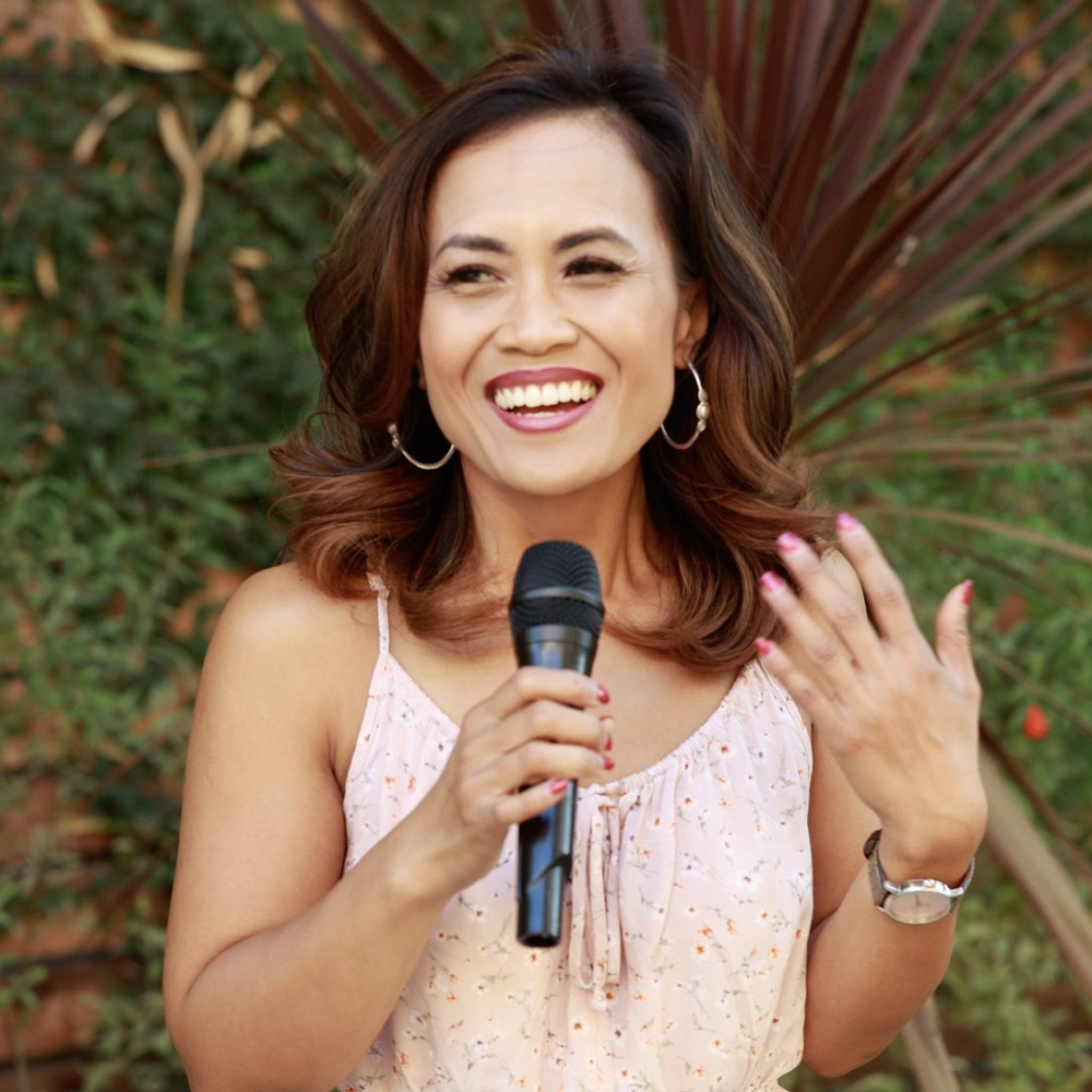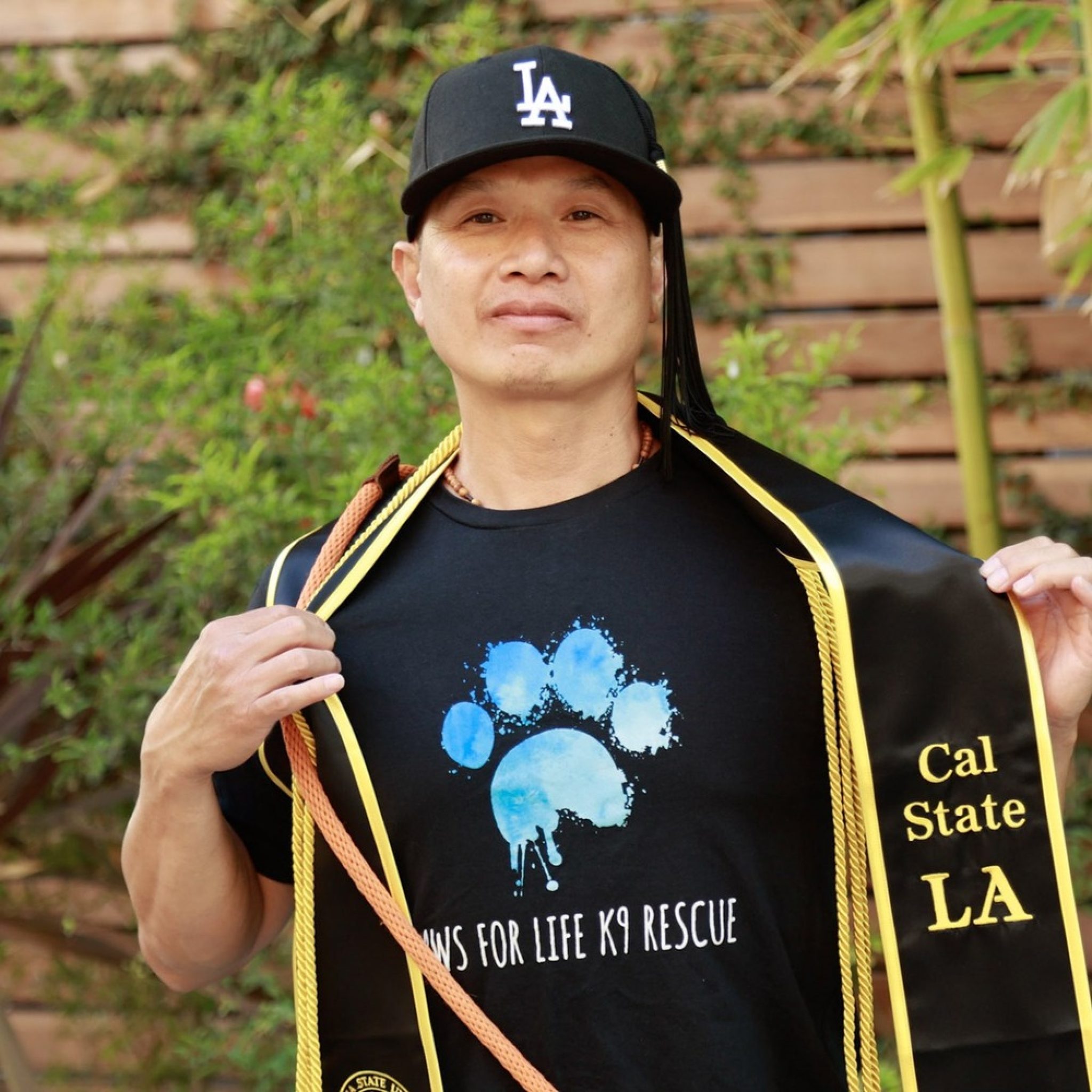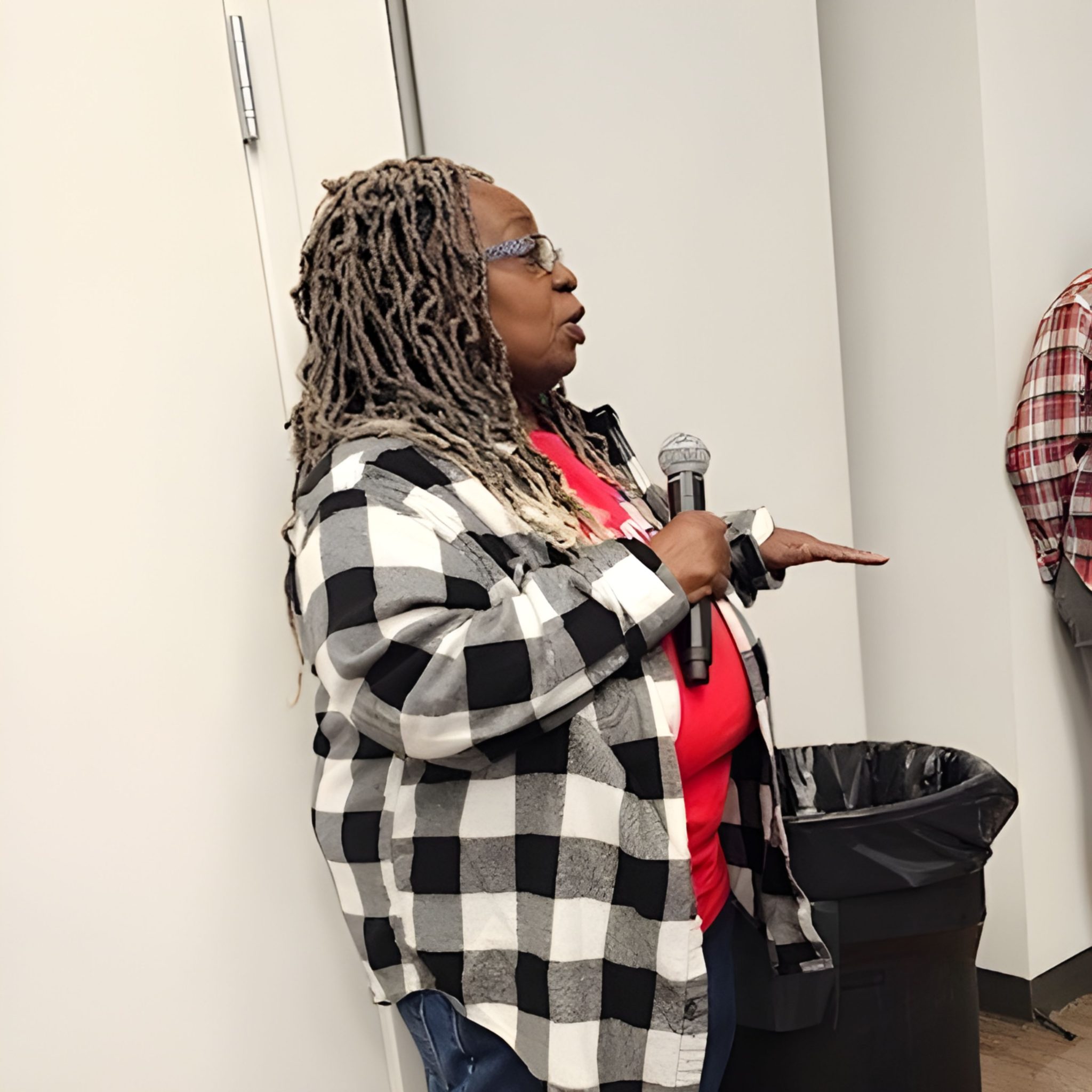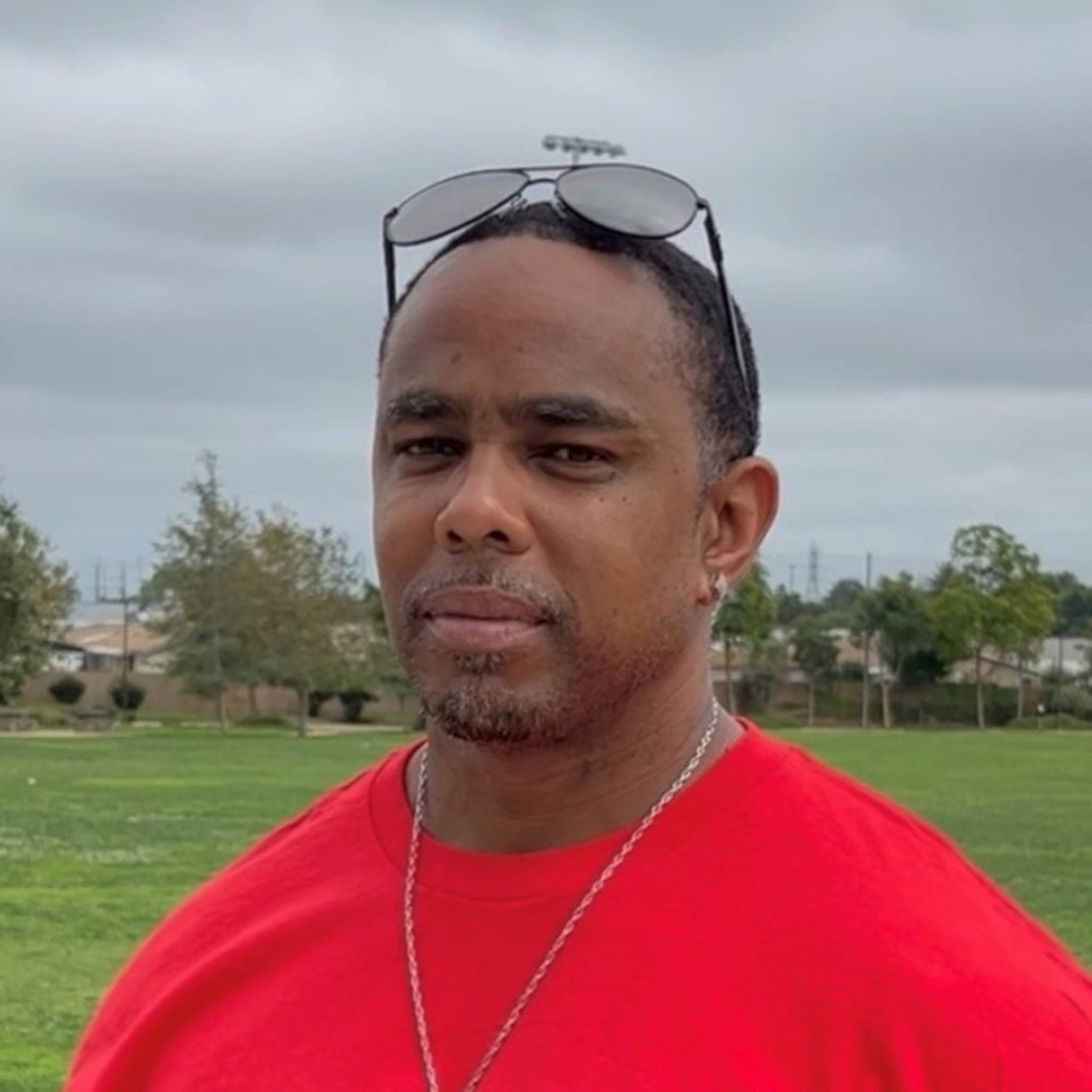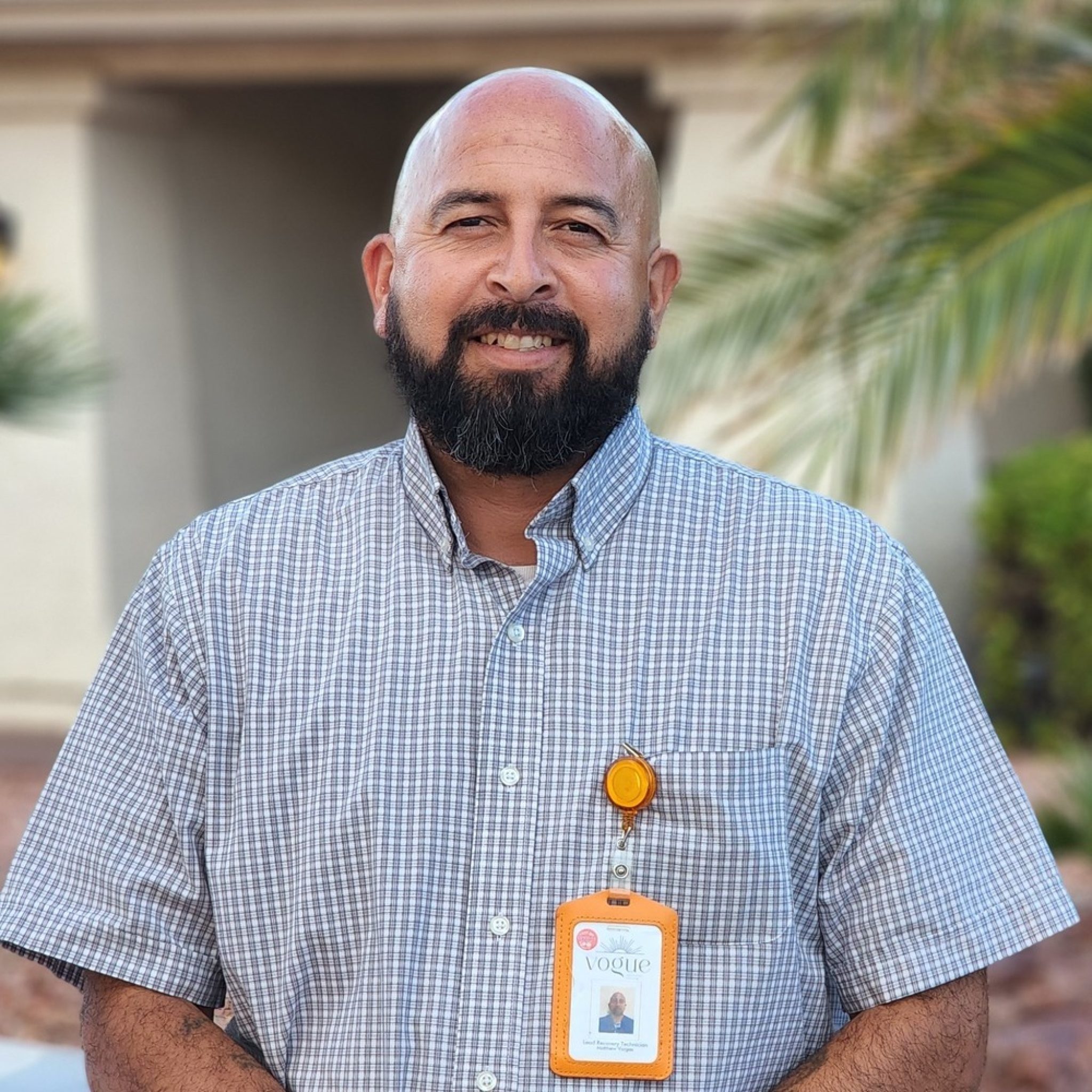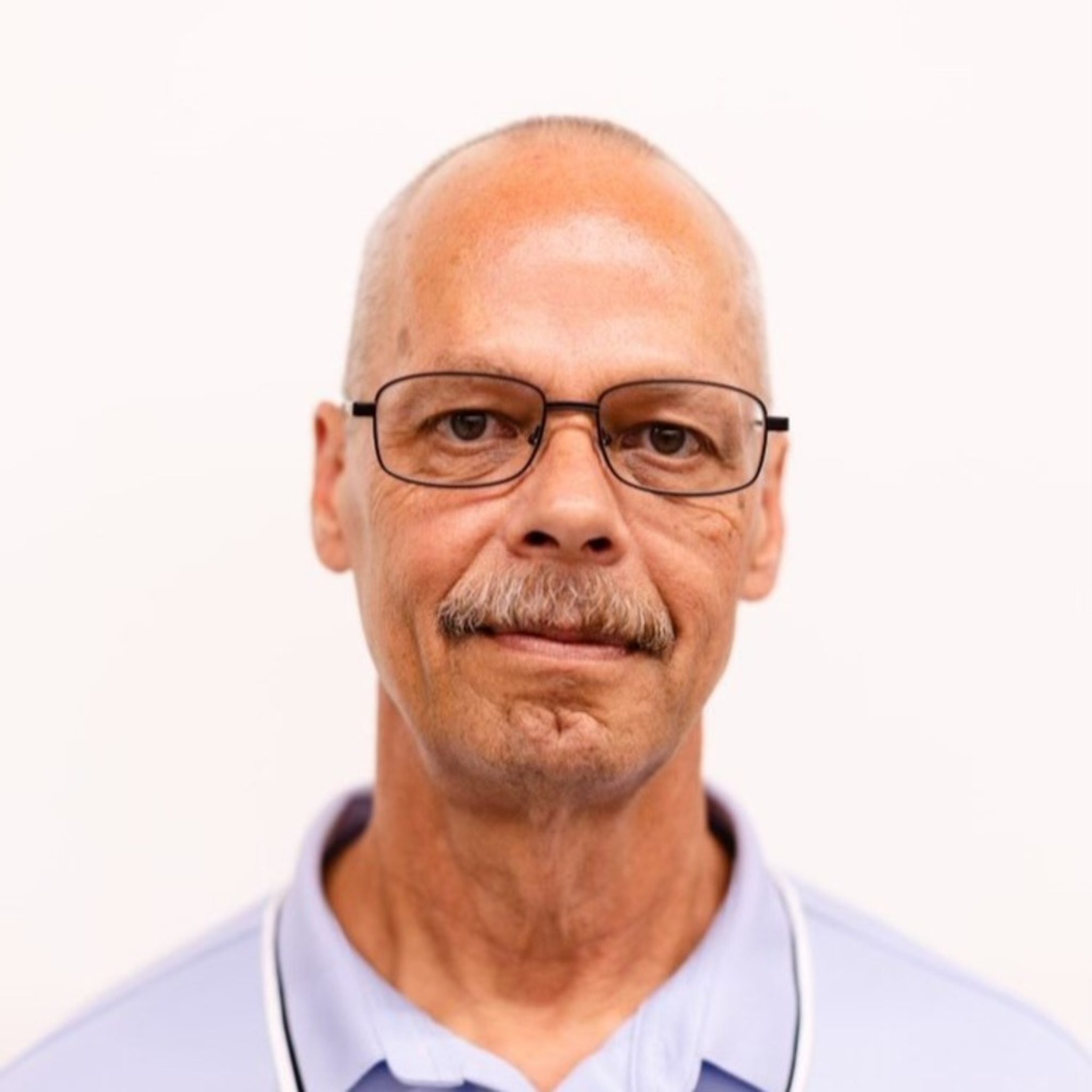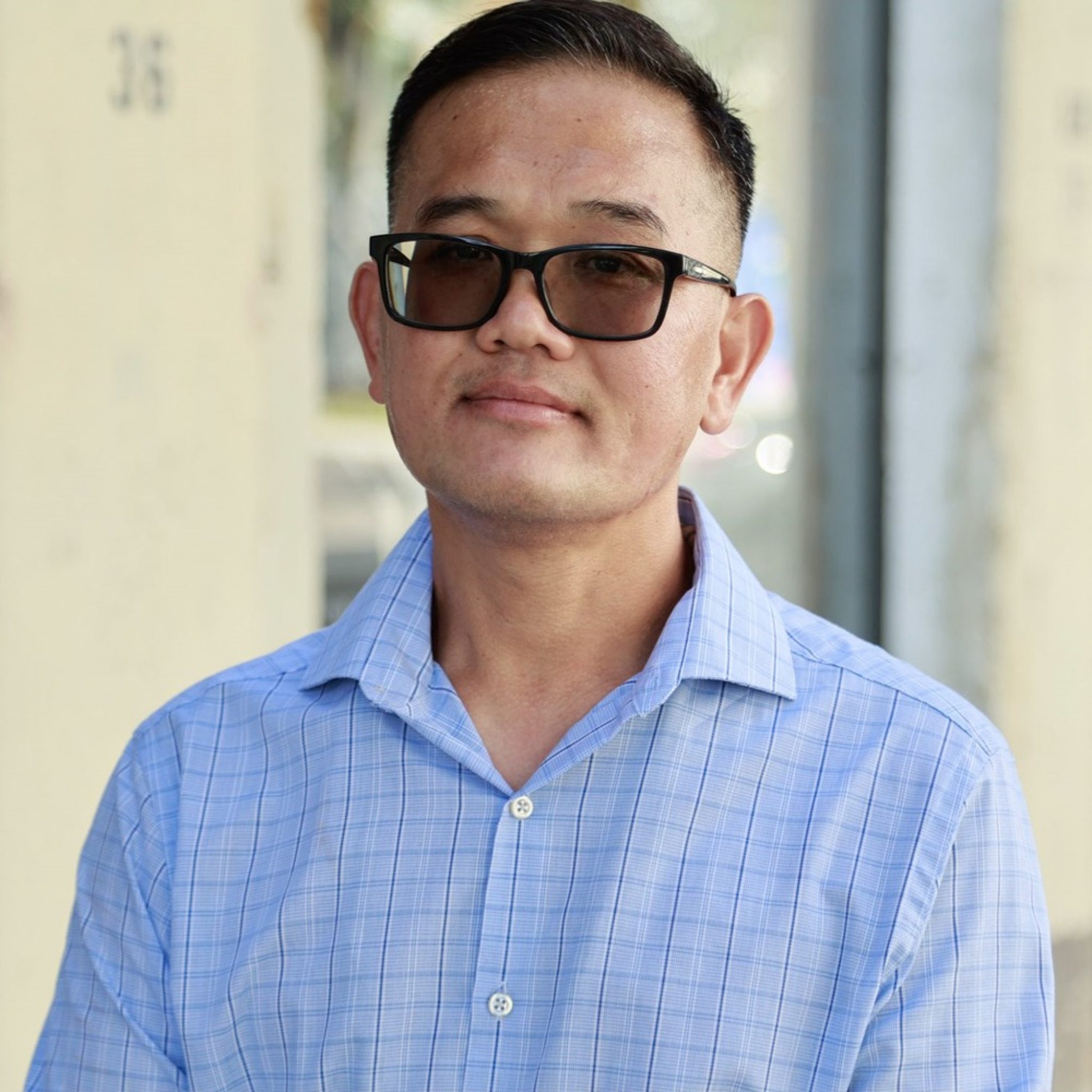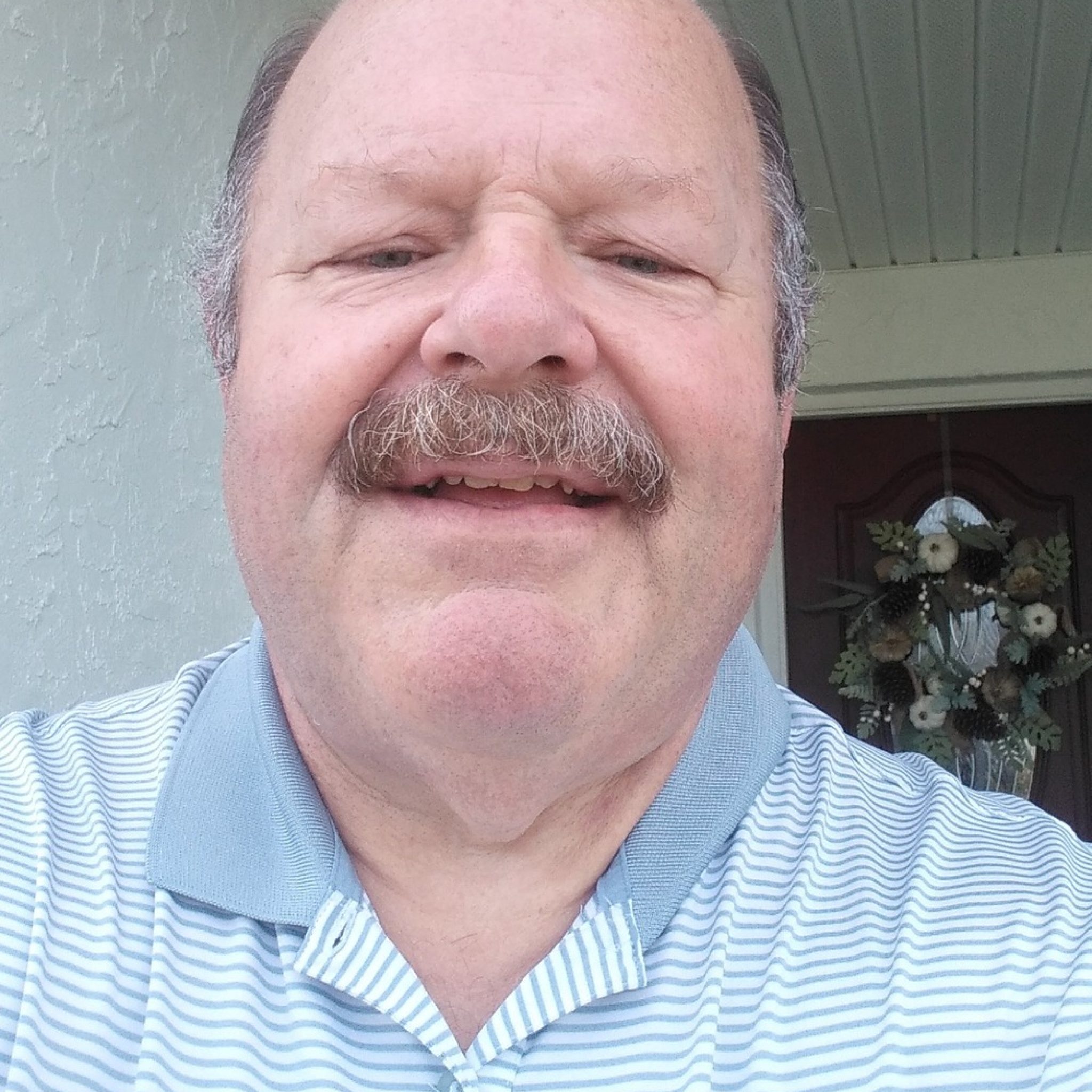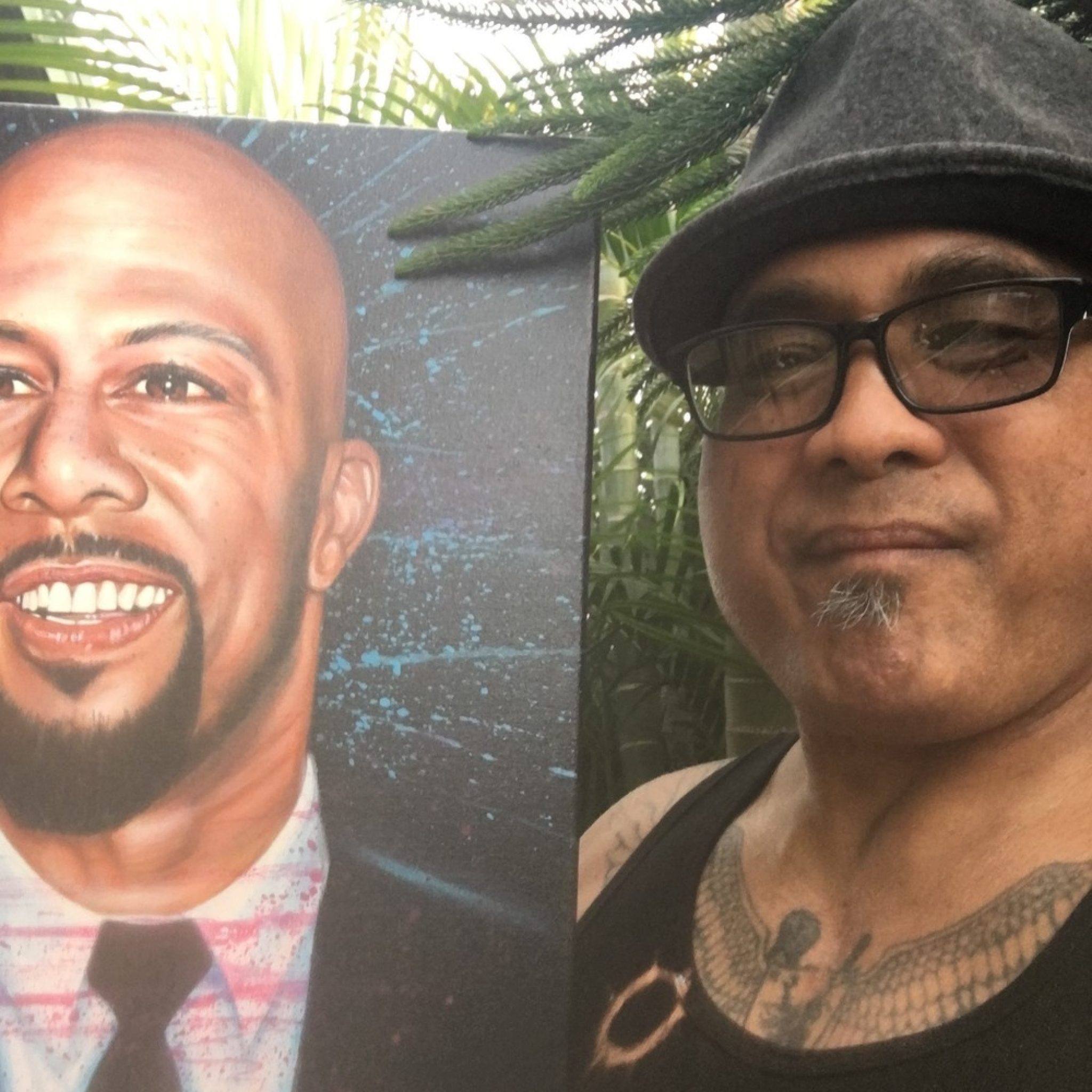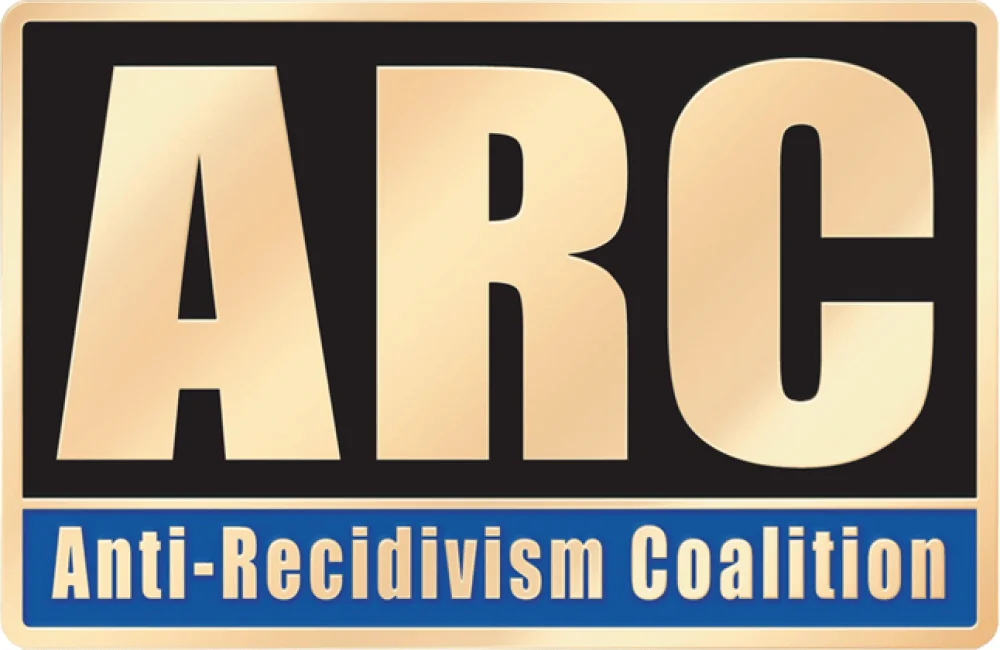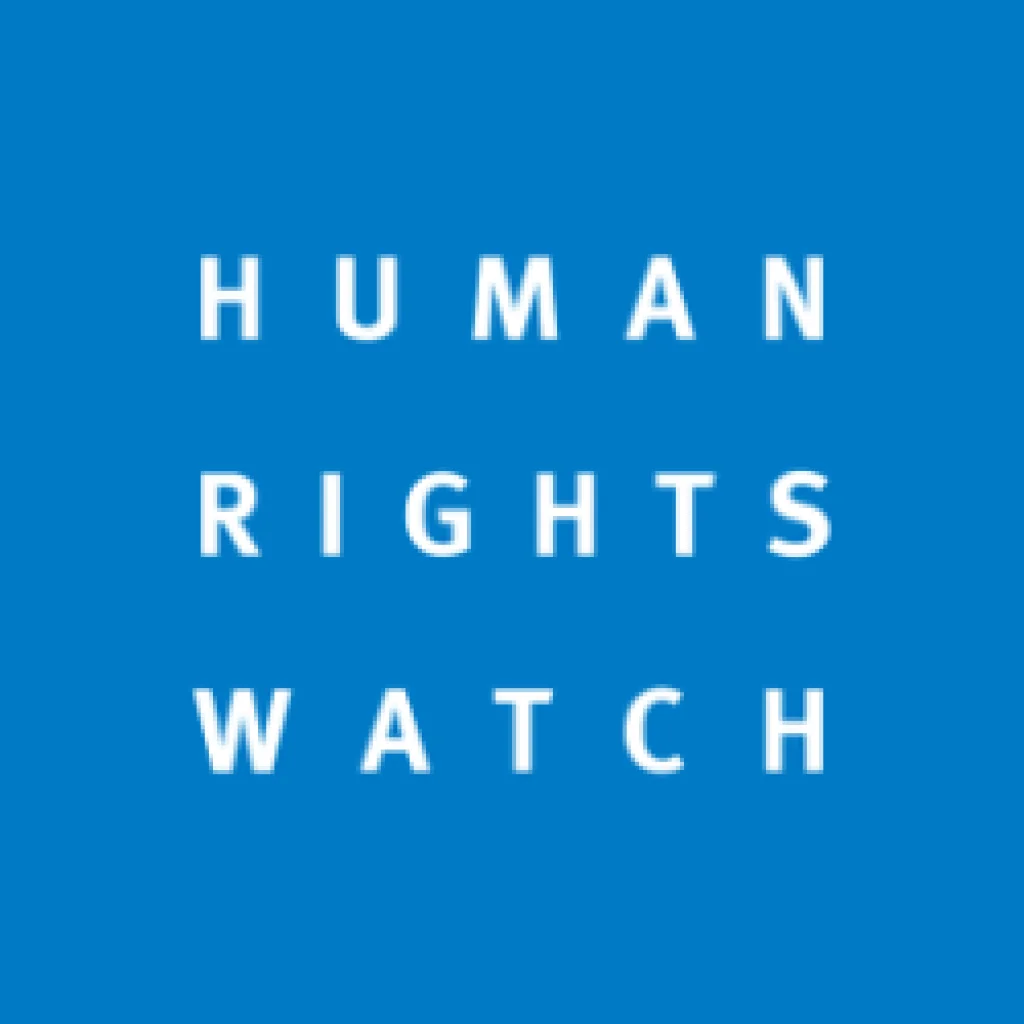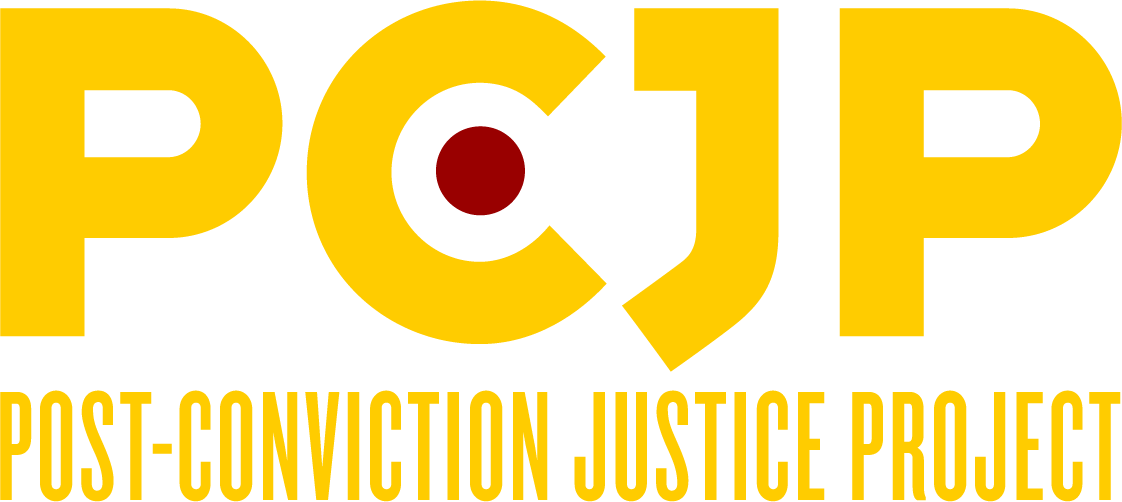See what people are doing with their second chance
The people featured here thought they would die in prison but got an unexpected chance to be released. We asked them: “What are you doing with your second chance? What are you most proud of?” Hover over the photos to read their answers.
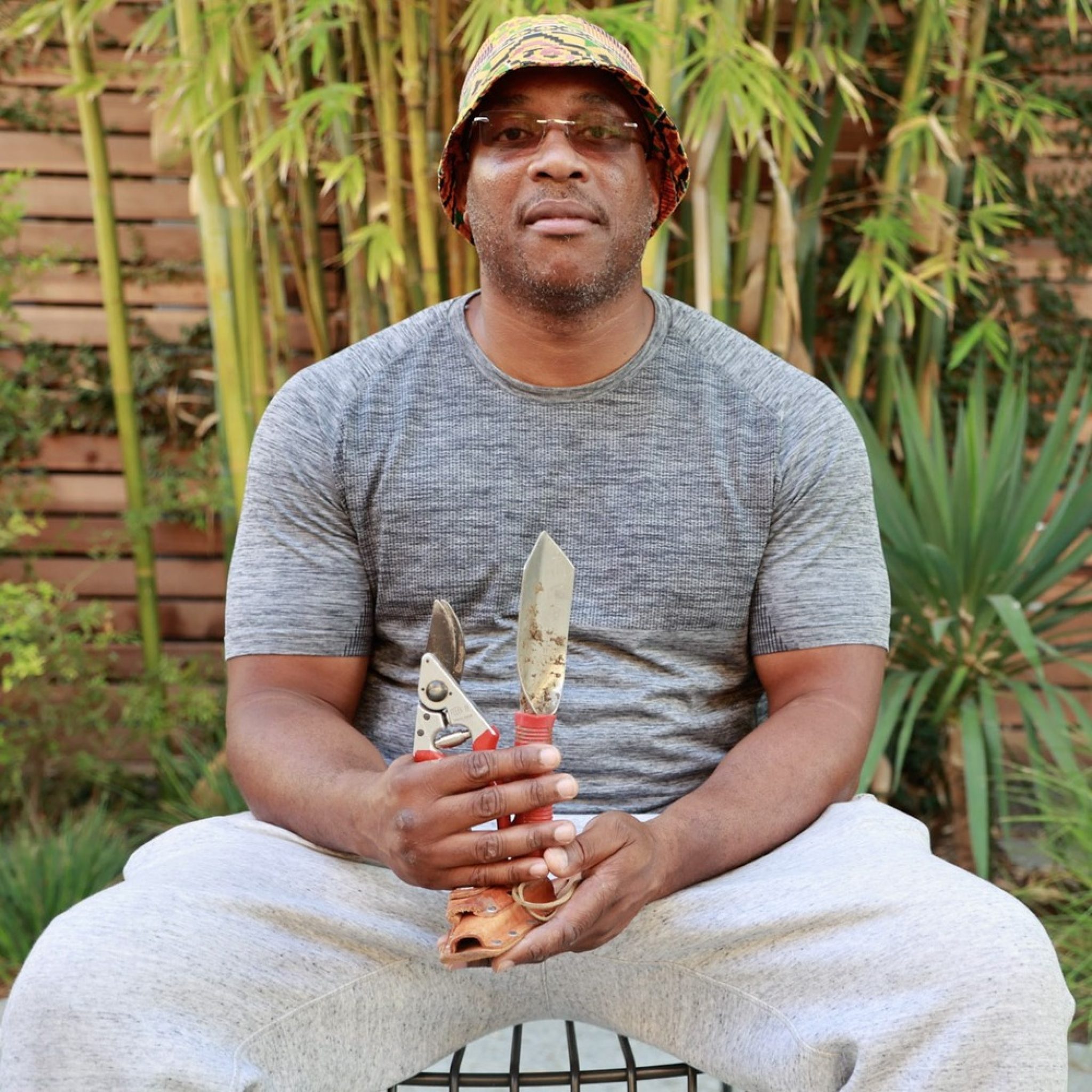
When I was arrested 33 years ago, me and my friends were using tools of destruction. We were destroying communities—not just destroying human life but destroying space. These garden tools represent my journey. Now I'm a urban farmer, a food justice advocate, and a cofounder of a nonprofit, Huma House. We cultivate gardens, but what we’re really cultivating is community. We provide nutritional food options and spaces of creativity for healing. I’m a part of building healthy, empowered communities.
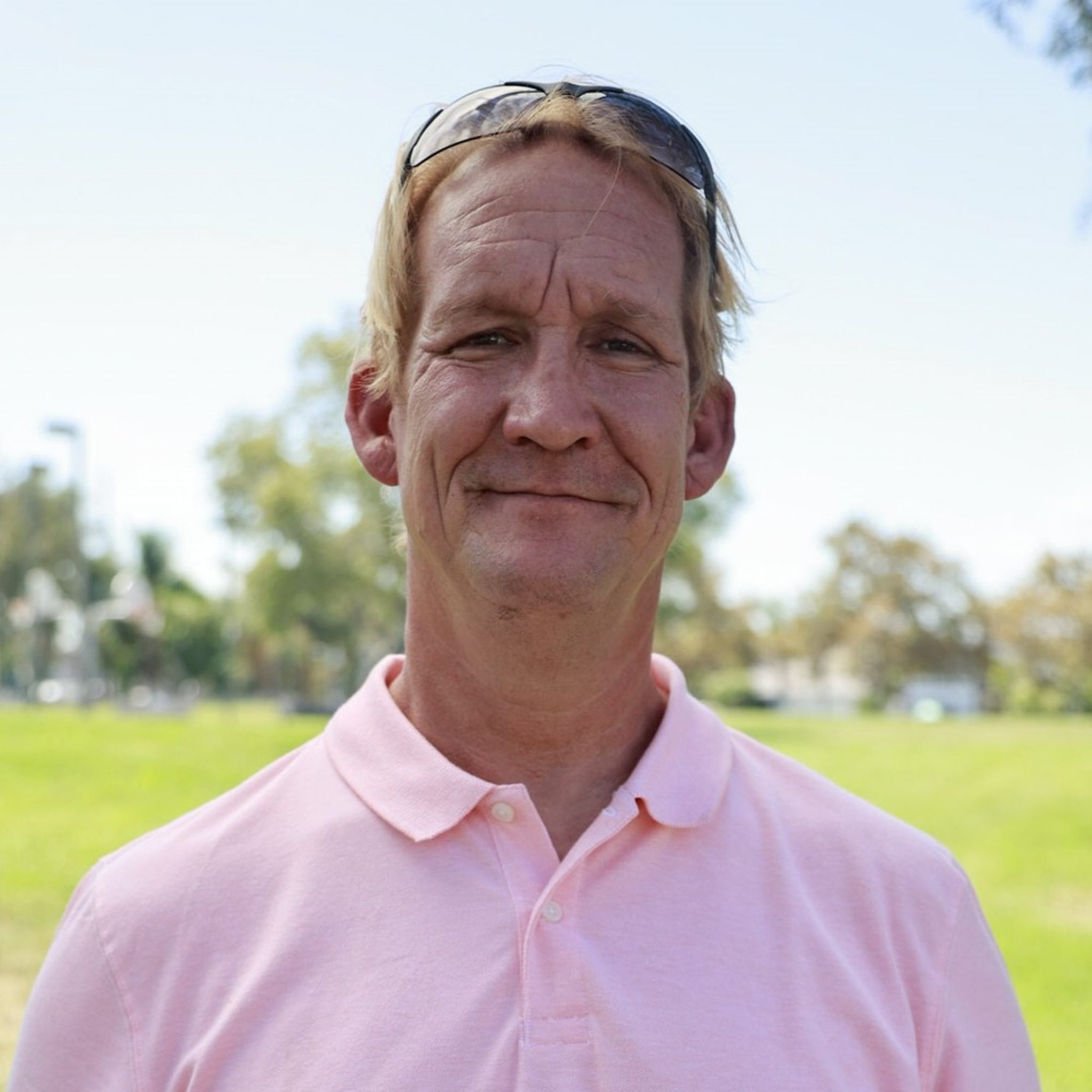
I started my own business to offer an in-home training program to people who face barriers to getting a service dog. For instance, there are a lot of veterans that have to wait on long, long lists, or people with psychiatric disorders who are unable to afford a service dog. I also take dogs into hospitals to cheer up patients, and I think it makes a tremendous difference in many of their lives. Volunteering with my service dog has been a chance to let them experience the same hope I had when I was incarcerated.
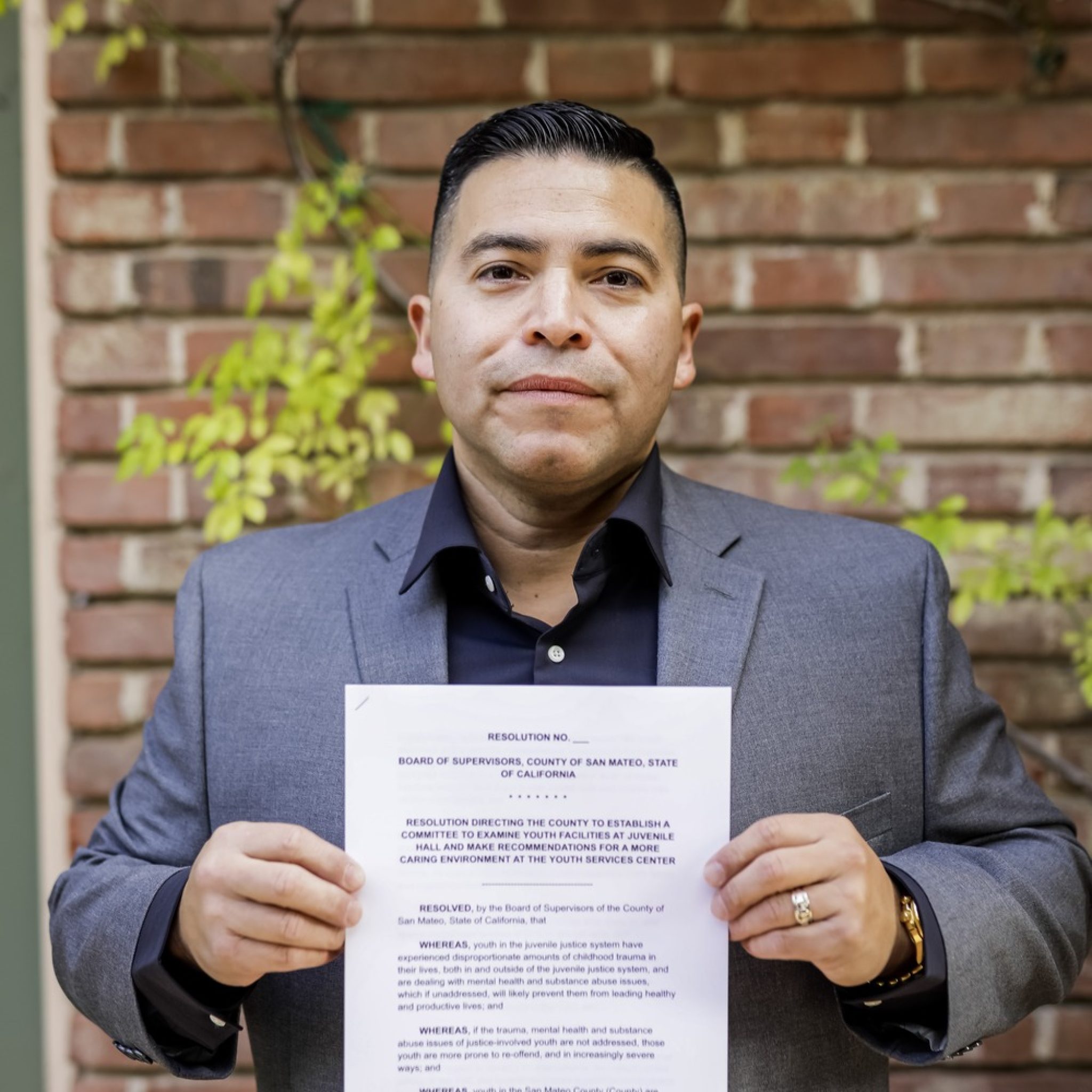
I co-authored a piece of legislation that was recently passed by the Board of Supervisors in San Mateo County. I’m a Juvenile Justice Delinquency Prevention Commissioner in the county, where I oversee how youth are being treated by the probation department as well as the criminal justice system. I’ve worked hard over the past three years to unite people, communities, organizations, churches, and elected officials to ensure that our youth are protected and not treated like animals in cages; particularly youth of color, foster youth, and those with mental illness, addiction, or complex trauma.
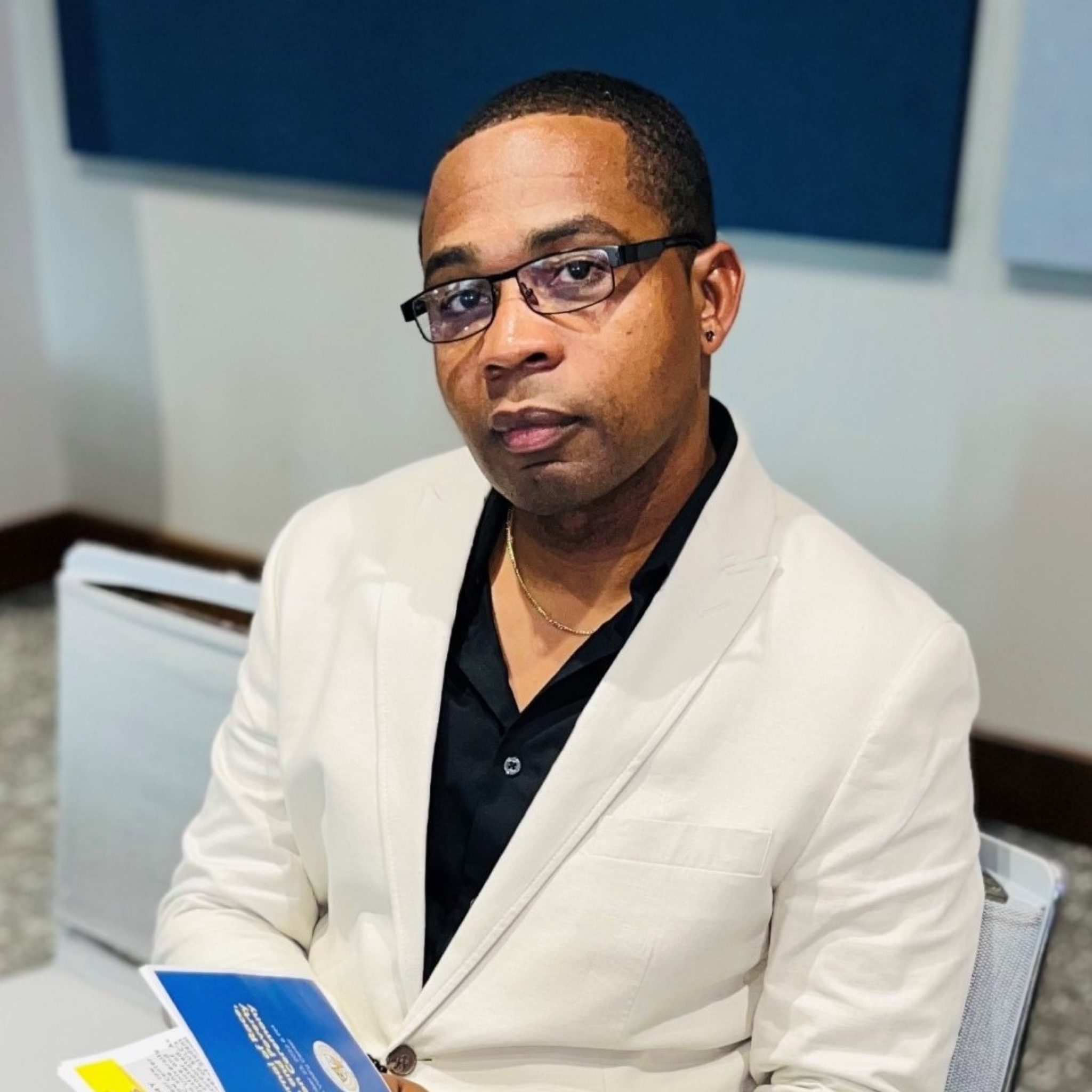
I am proud that my experience growing up in Angola, Louisiana State Penitentiary birthed my life's work. I am employed at the Louisiana Center for Children's Rights, and every day I have the privilege of helping society's most vulnerable children who, like when I was a child, are navigating the criminal justice system.
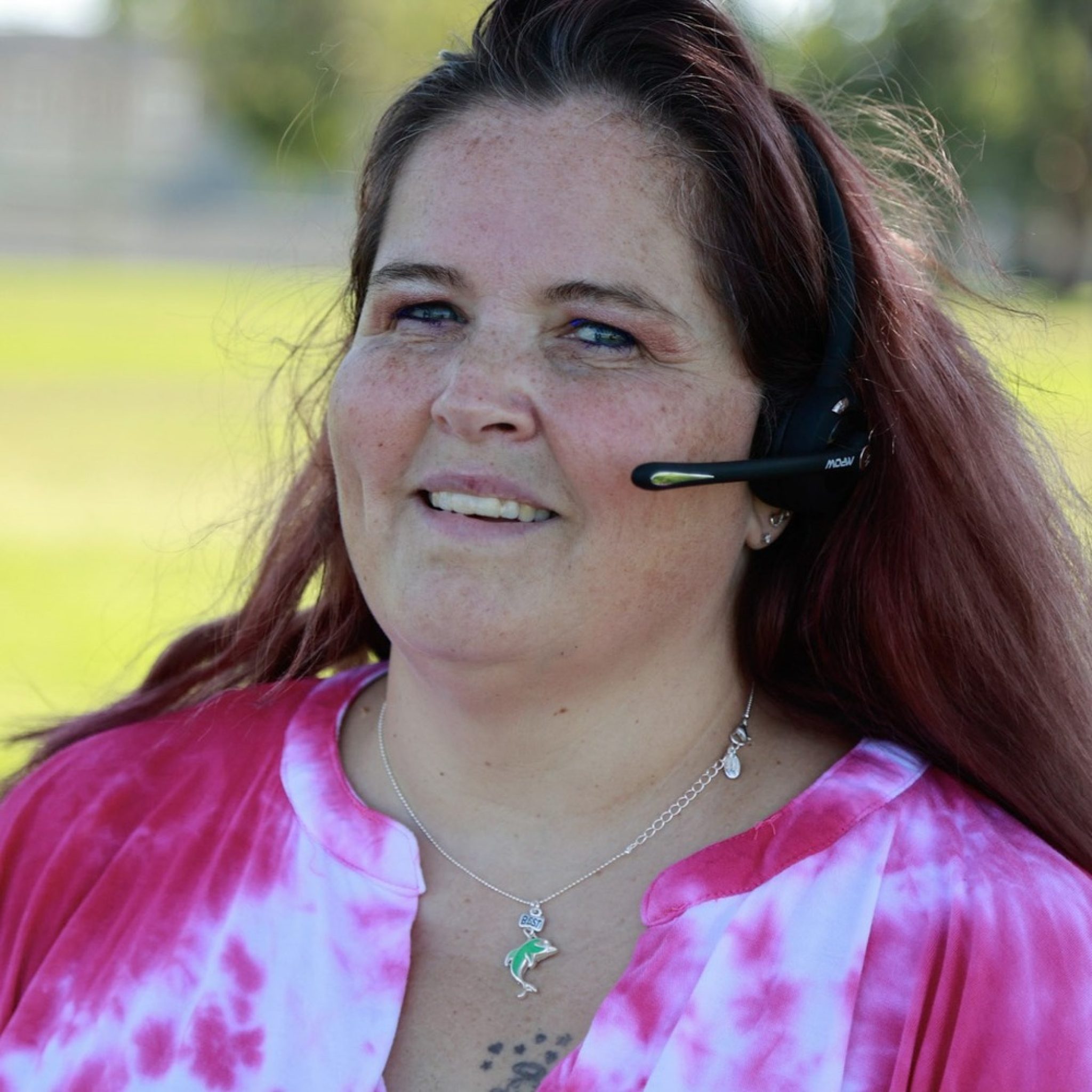
I am so proud to volunteer at San Francisco Women Against Rape. I worked on the hotline for a year and a half. I had 378 hours of domestic violence training while incarcerated. I also started a domestic violence program in prison, and I provided counseling, medical advocacy, and medical accompaniment for women there. Being able to continue that work once I got out means everything to me. It’s been amazing to be able to help women and give them support in a way that I didn’t have before I was incarcerated.
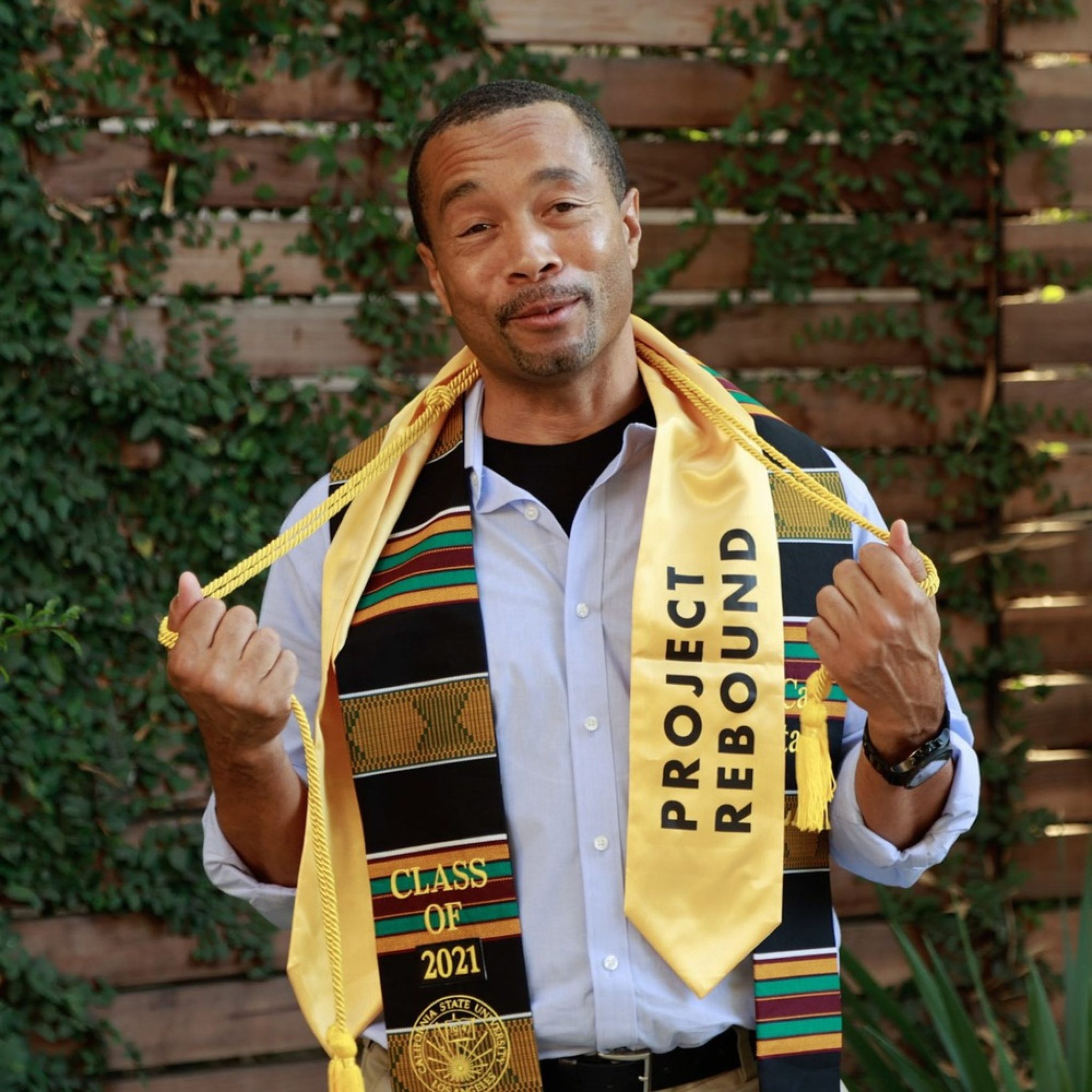
Part of my living amends is continuing my education. I promised the parole suitability commissioners that, if I were found suitable for release, I would continue my education at Cal State Los Angeles. Later, I received a letter from one of the surviving family members of my crime who believed I was truthful during my hearing. That person hoped I was sincere about maintaining my sobriety and finishing school and forgave me so they could move on. I understand that I took an opportunity for the family to have a meaningful life with their loved one. I was wrong. I am accountable to the people I harmed and am mindful of that as I live out the opportunity that I have been given.
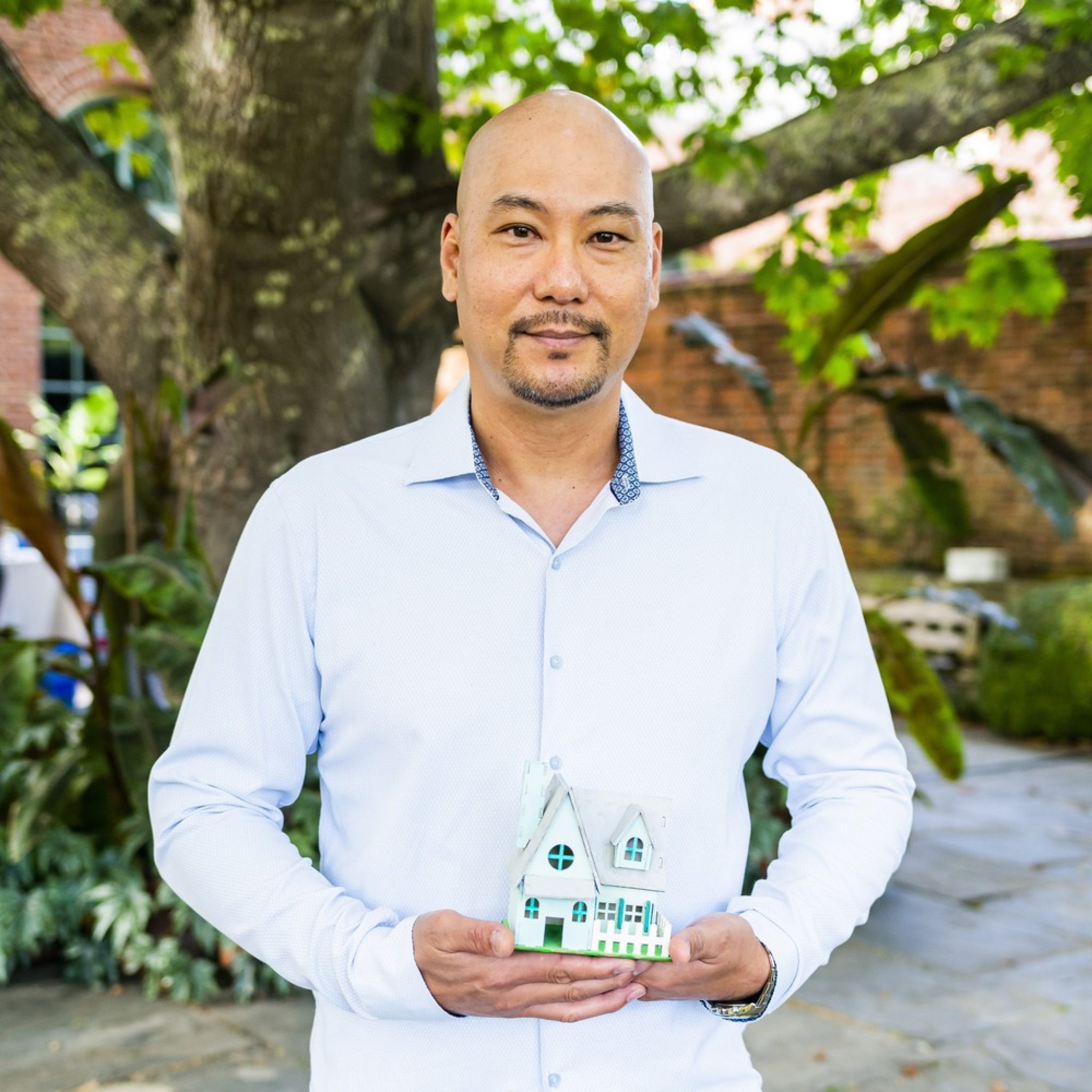
I work for a great organization that is founded on social and restorative justice principles called Five Keys Schools and Programs. We provide multiple services to help our community members that are experiencing the trauma of homelessness. Prior to coming home, I said I wanted to work in a field where I’m helping people, and now I get to do just that as Deputy Director of Guest Services at Five Keys. I help oversee eleven sites, covering San Francisco and Oakland, where 400 returning citizens help community members that are often overlooked.
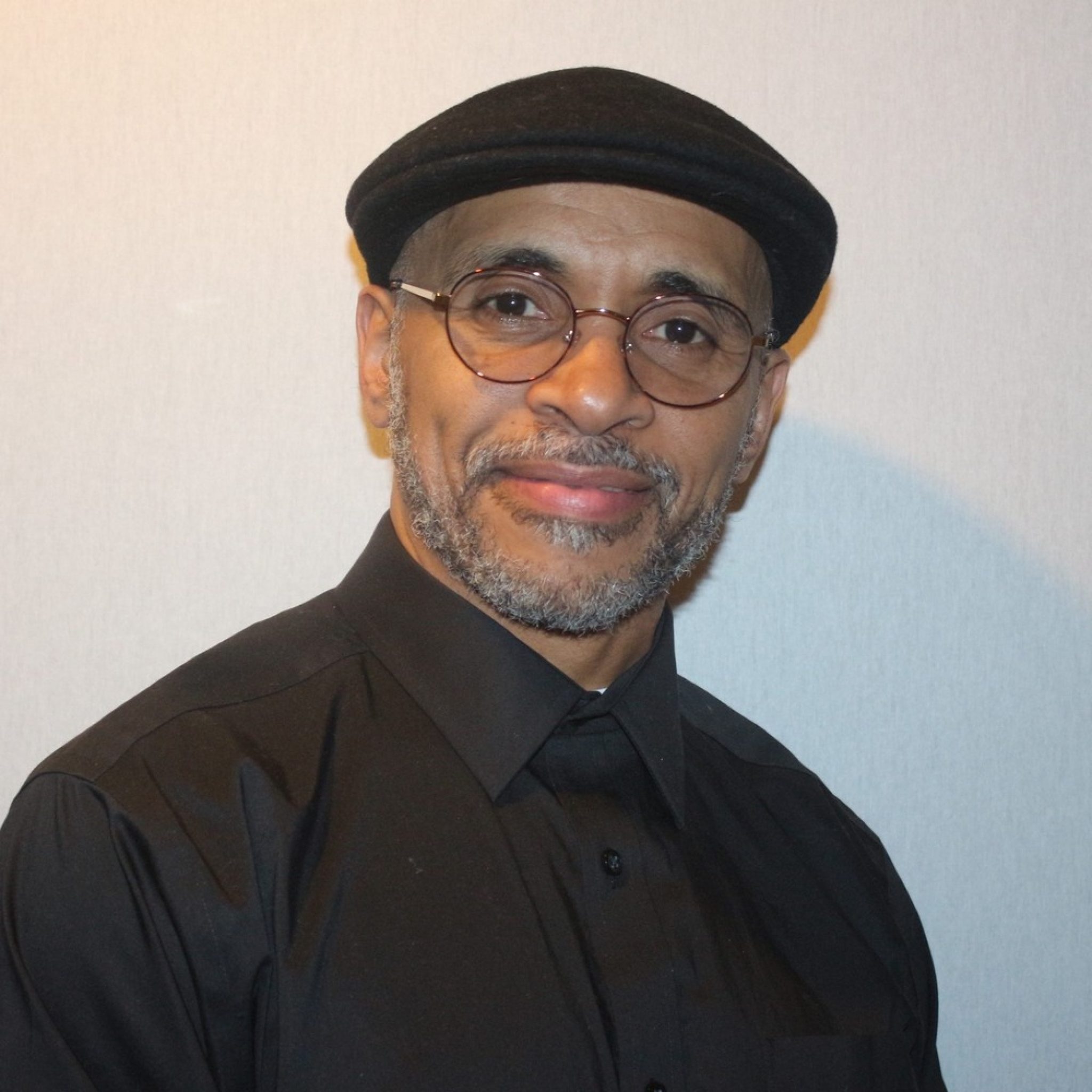
My focus is on healing as social and political action. I founded Ubuntu Philadelphia, a forum where people impacted by violence—both causers and survivors of harm—can come together for dialog about community healing. I also serve as program manager of Philadelphia’s first restorative justice diversion program, called Healing Futures, where I work with a team of restorative justice practitioners who support young people who’ve caused harm in being accountable and making things right with the people they have harmed.
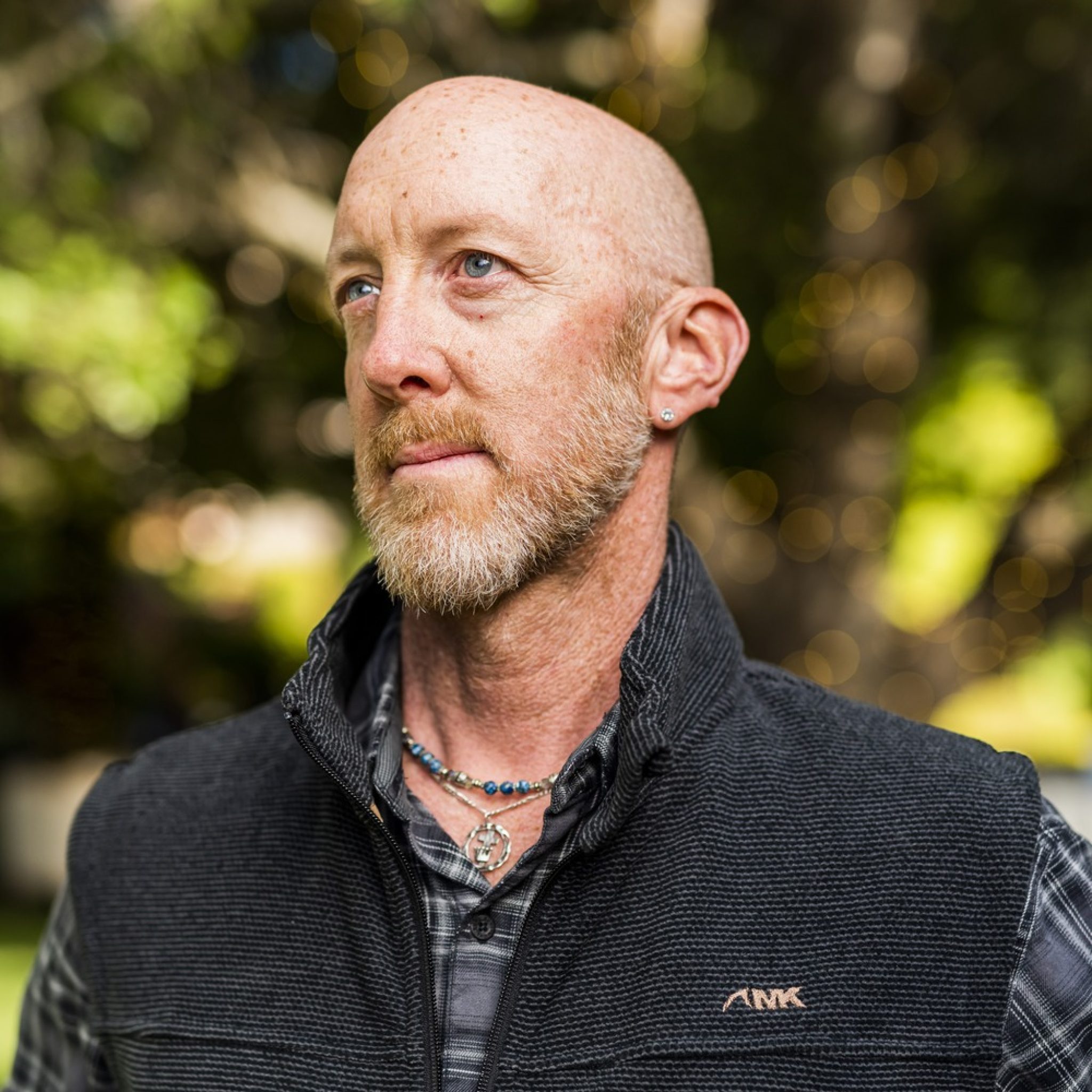
I do a lot of work with the homeless. I try to help and show that they are not forgotten—that they are a part of the community. I do this because I’ve realized that they feel similarly to the way I felt the whole time I was in prison—outside of society, outside of the community. Since I’ve been home, doing things for others is what drives me. Because I took a life, I’m trying everything that I can—my whole expression of life now is to give back and to open myself for others to feel the love that they deserve.
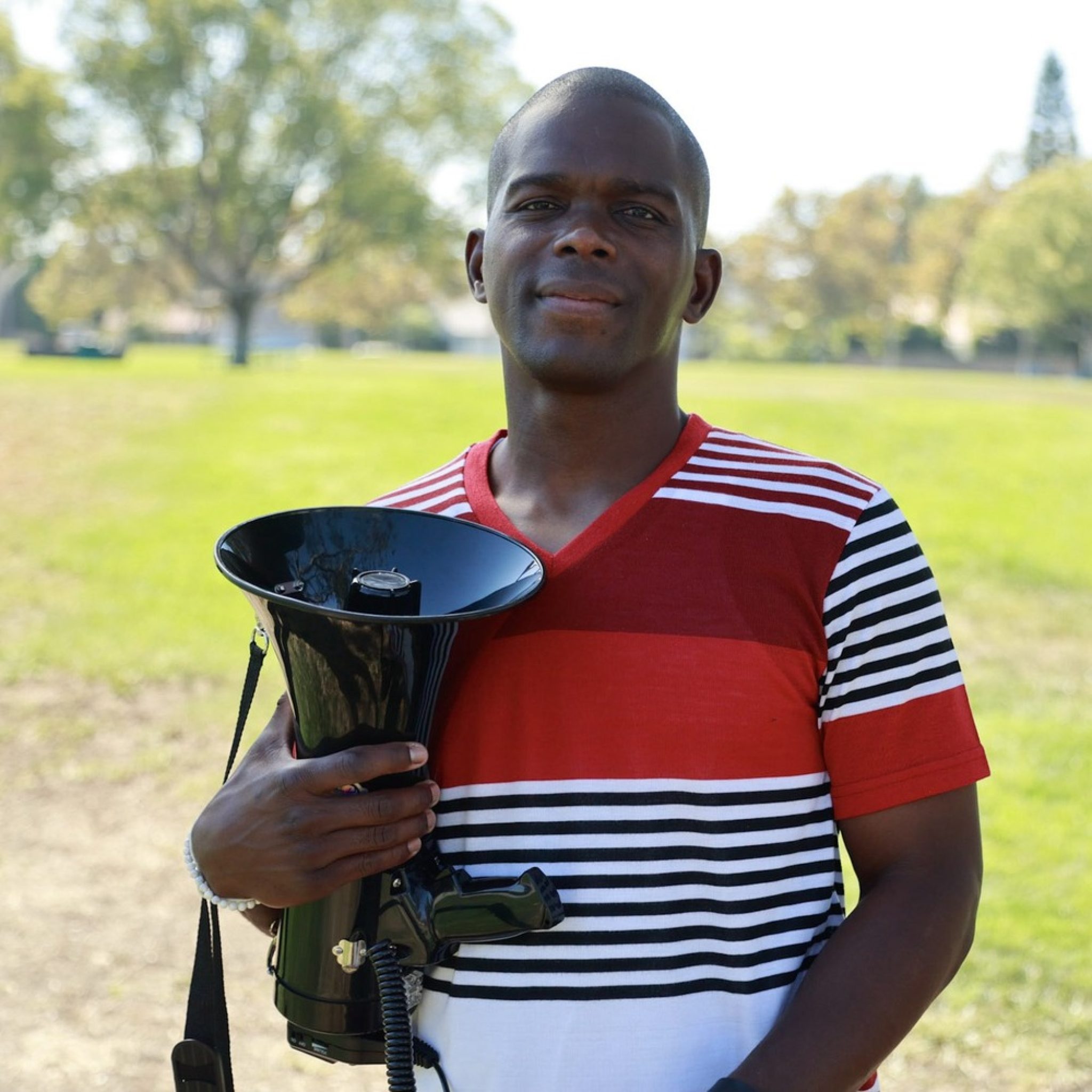
I have a debt to myself: for the rest of my life I will always use my voice to speak up for justice and for the voiceless. I mentor troubled youth who are going through the same thing I went through and teach them about peer pressure and gang violence. When I was their age, I didn’t have anyone to grab me and say, “hey, you’re not going to go down this road.” I can be that voice to them. I’ve been trusted with the opportunity to pull these youth in the inner cities of Los Angeles aside and say, “that’s not going to happen.”
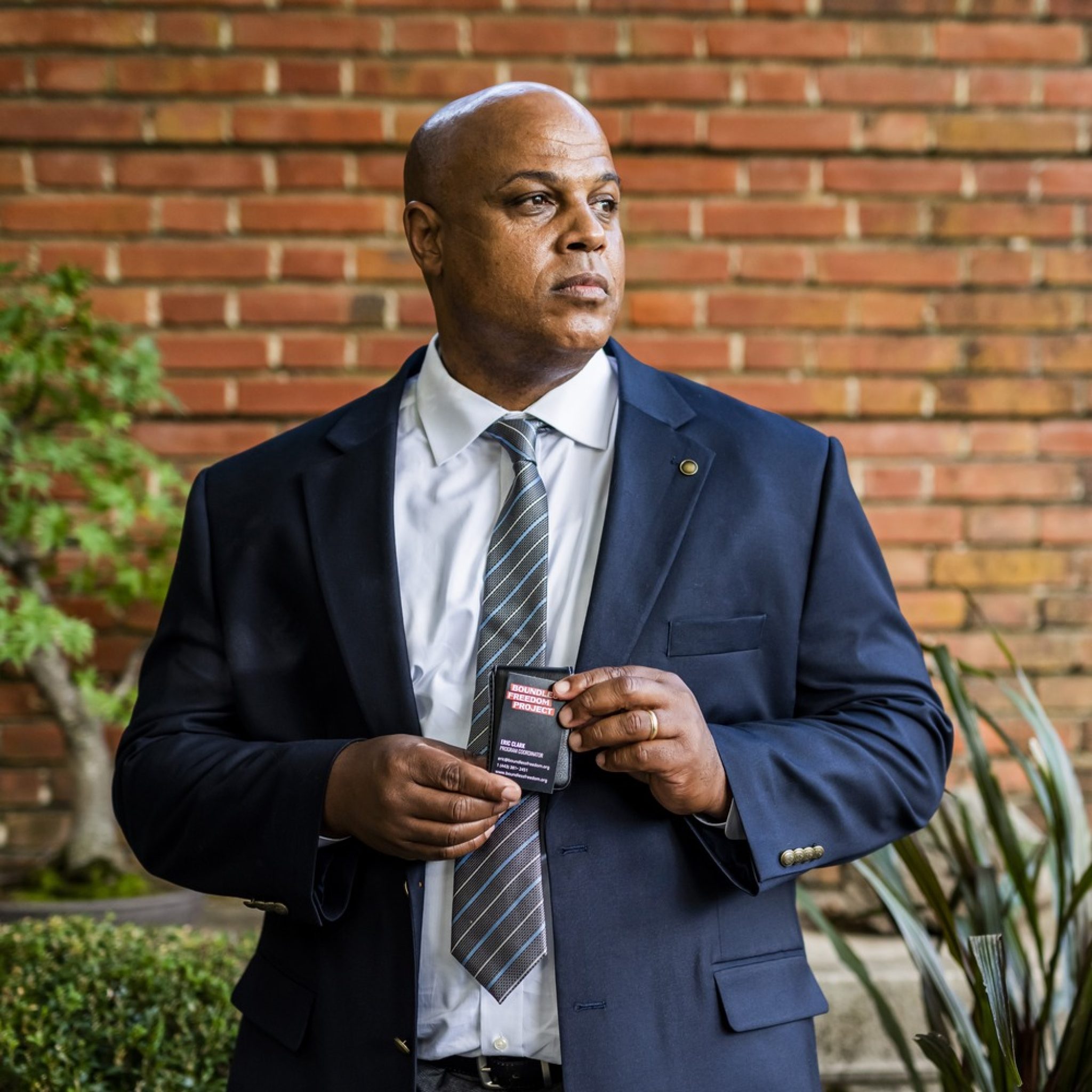
I’m a Program Coordinator for Boundless Freedom Project. We organize volunteers who go into institutions to teach mindfulness and meditation in dealing with some of the stressors of incarceration. I’ve been with the program for 11 years—I began while I was still incarcerated. They assisted me in changing my perspective on life. You know, a lot of the harm I caused in my youth came from trying to take advantage of others. Now, I take the opportunity to help people instead. And that’s who I’ve become.
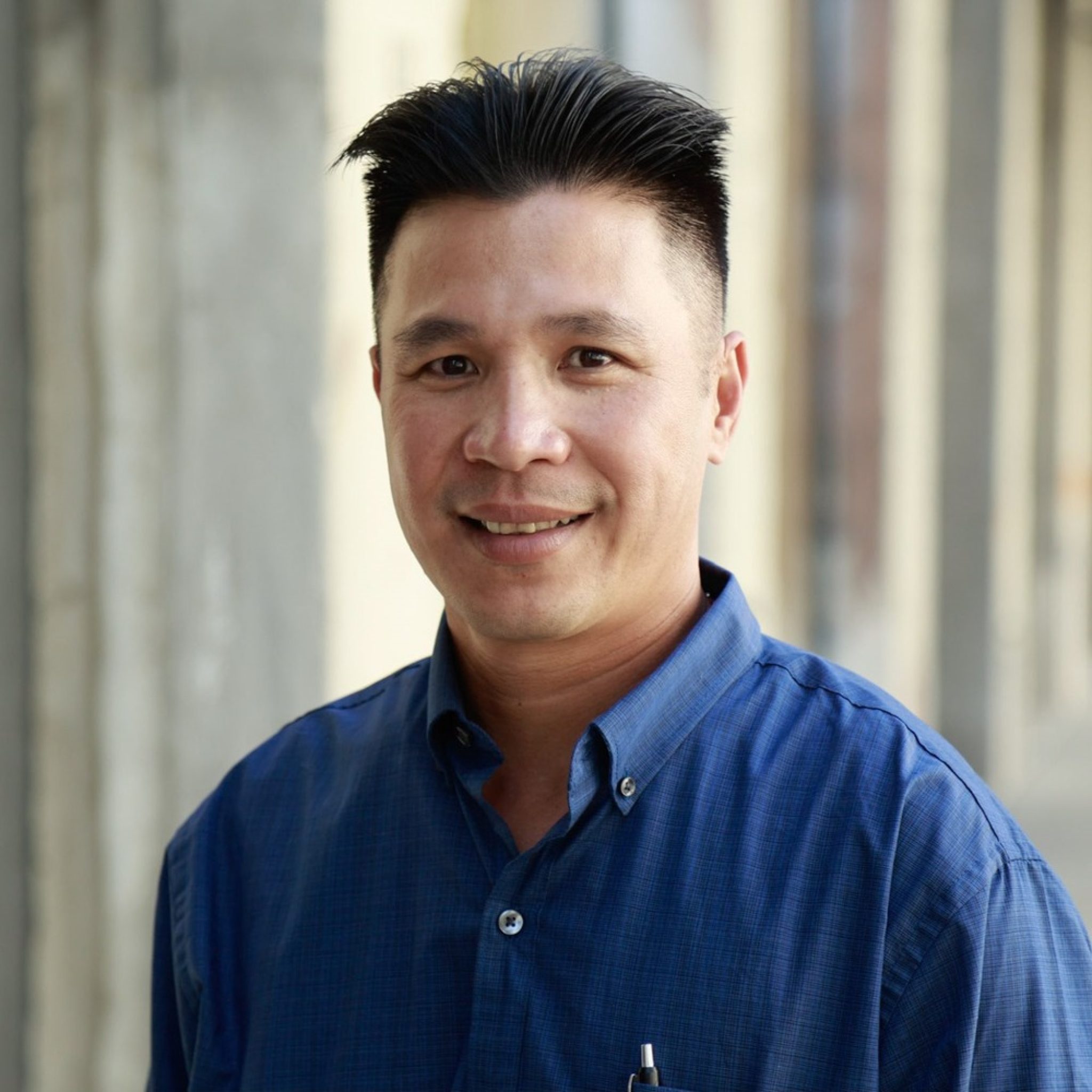
I am part of the Paws for Life Program that takes shelter dogs and helps find them homes. In many ways, the dogs remind me of myself. Nobody wanted them just like nobody wanted me. After I transformed my life and became a better person, Governor Brown gave me a second chance. I want all of these dogs to have a second chance like I did, and to find a forever home.
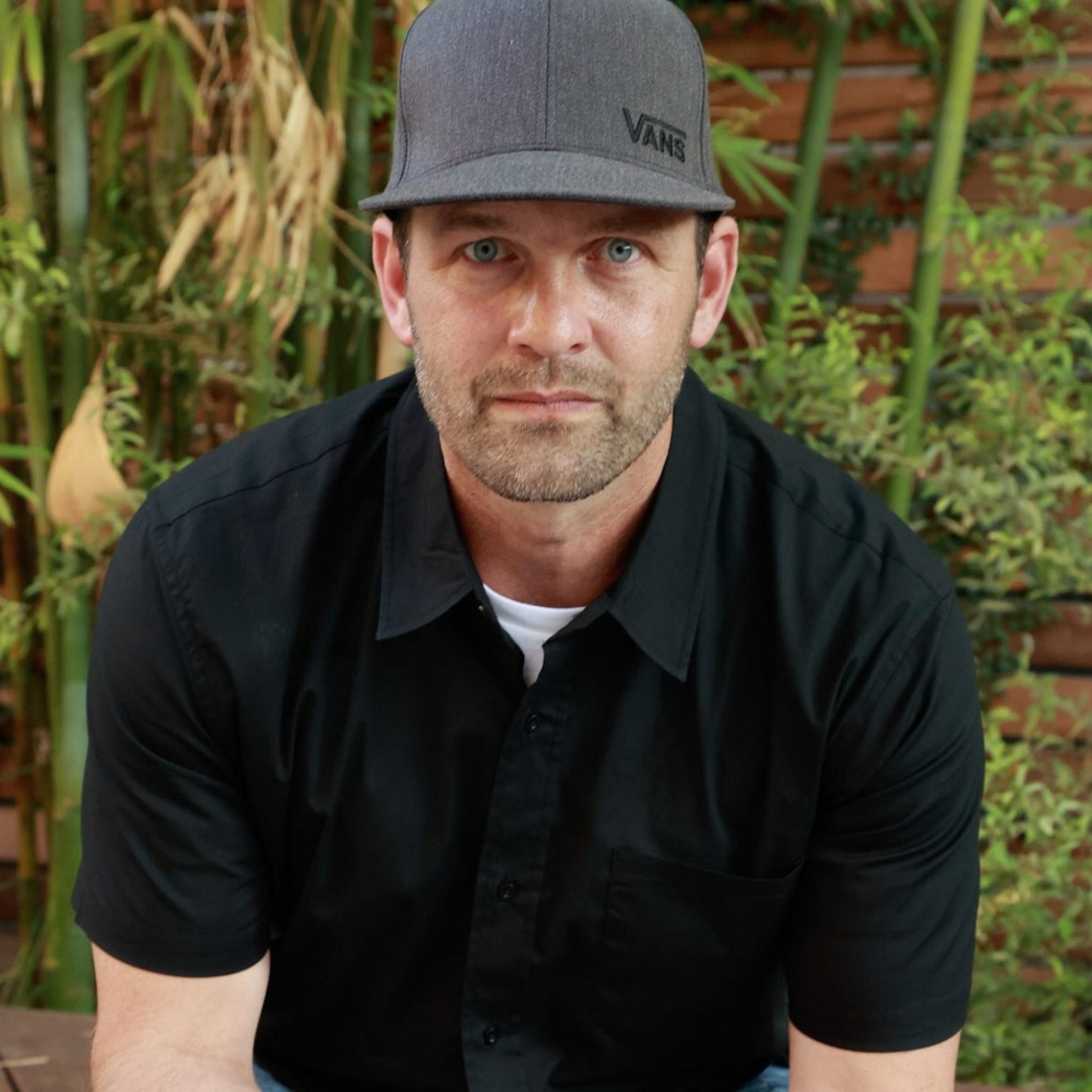
While I was incarcerated, I paid off my restitution for the burial costs of my victim with funds raised from selling my artwork. I then started the Prison Artists Guild and taught others how to do the same thing—to hone their craft as an artist so they could also pay their restitution andto the victims give to charity. Since being released, I've continued this work, helping people who are incarcerated because it's one of the only viable options prisoners can raise enough money to pay restitution while incarcerated. Art was a part of my freedom. I didn't expect it to be, but it became this amazing thing. It was pure, it was good, and it was legal.
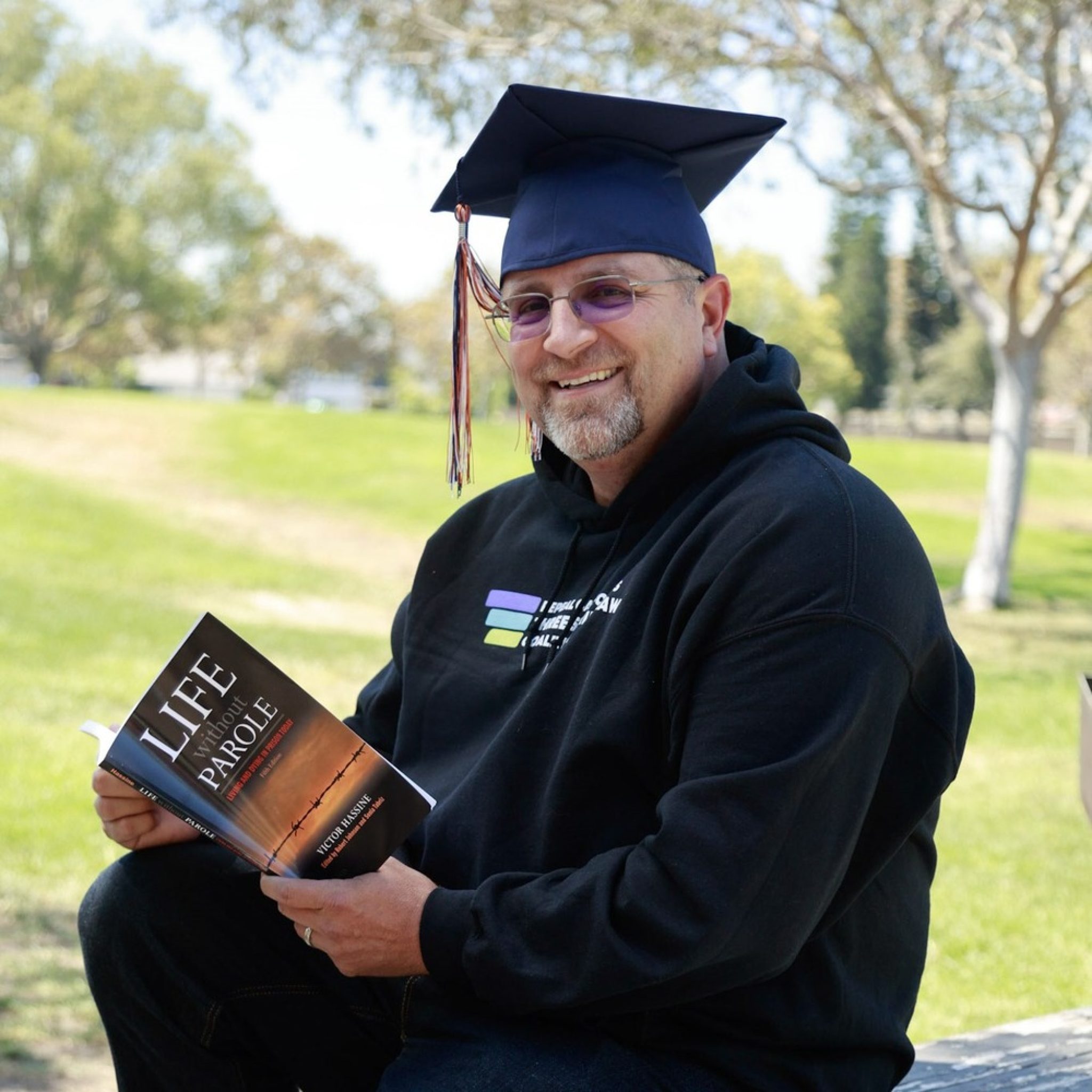
I graduated with a BA in criminal justice. I’m now a PhD student in the Criminology, Law & Society program at UC Irvine where my research focuses on discretionary decision-making by parole boards. My journey from life without parole to doctoral studies exemplifies the fact that no one is beyond redemption. My research aims to contribute to a deeper understanding of justice and where change is needed, demonstrating that people can transform and positively impact society. My path highlights personal achievement and a broader obligation to challenge narratives around incarceration and showcase the potential for growth and redemption.
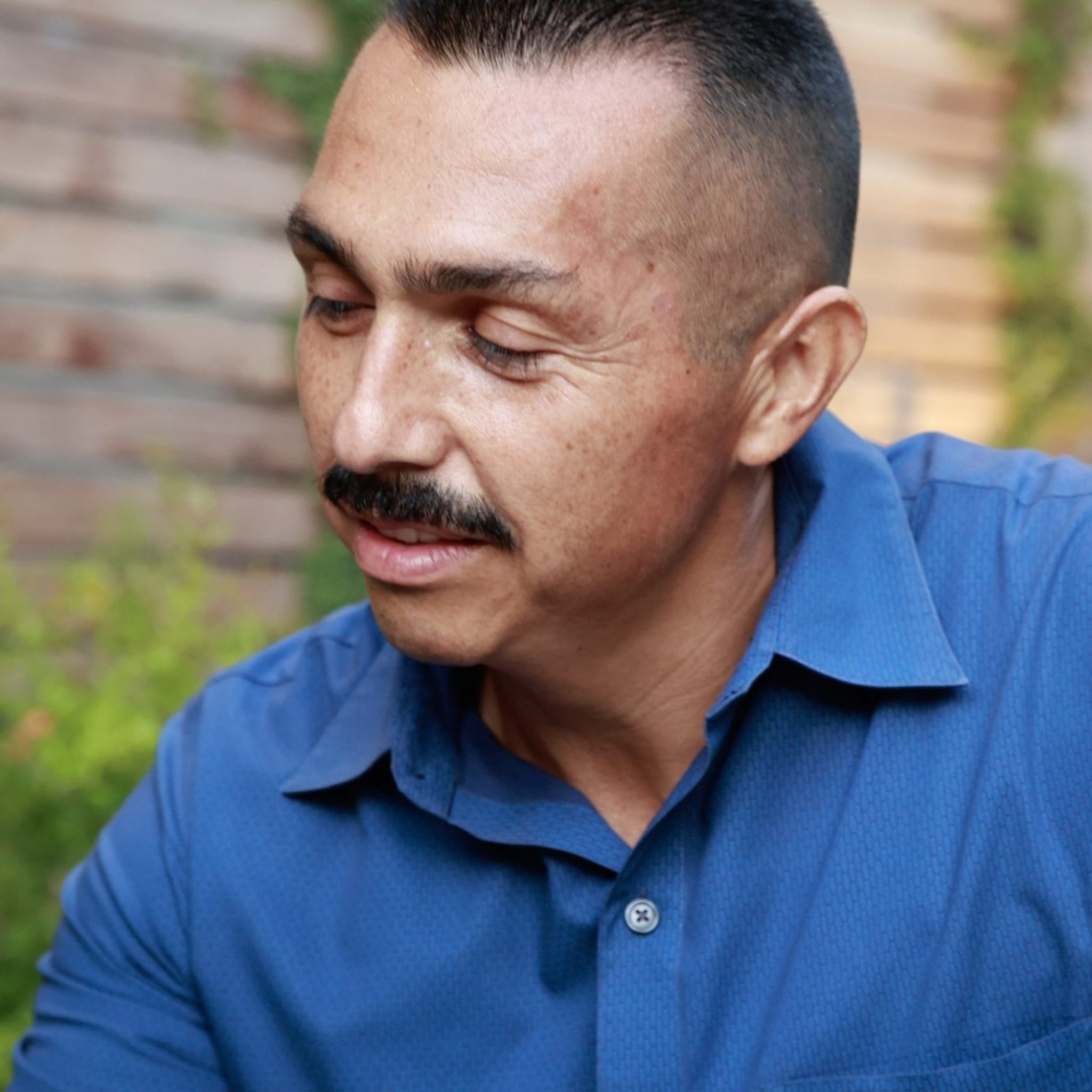
This Human Rights Watch pin symbolizes hope to me. When I was incarcerated, I got a letter from this organization. Their work gave me hope when I was inside. And when I came out, I wanted to dedicate myself to doing the same`. I reached out to that organization because I wanted to be a part of their work, to make that change, trying to give others the same hope and the same breath of fresh air that I have. I had the opportunity to work for them and be that change. I pray that I will continue to do that wherever I am.
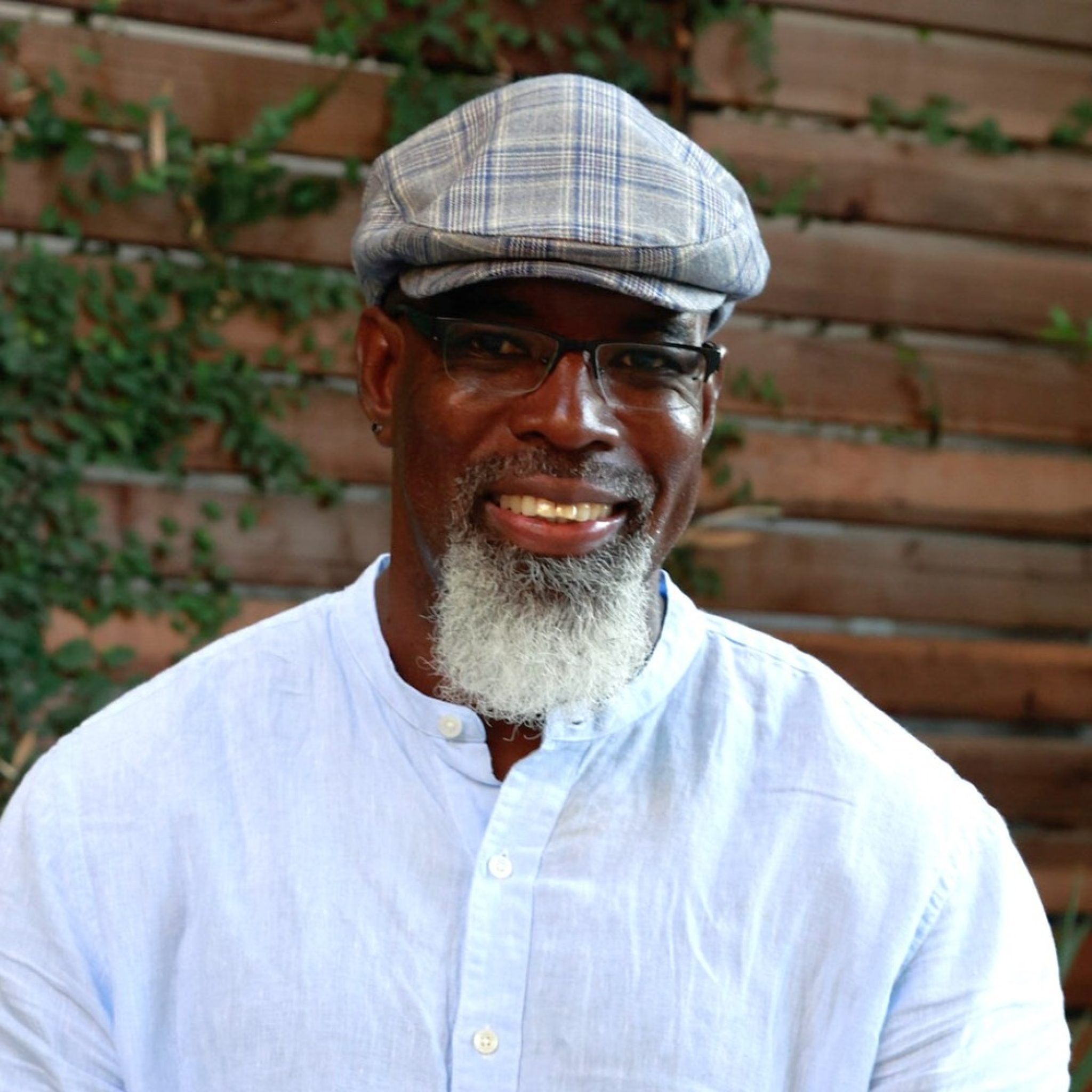
For years prior to my incarceration, I was selfish. But now, my family and I donate to food banks for those that are hungry and in need. I’m also a sous chef for a catering service. I put a lot of love and care into the food because it is a way I’m able to give back to my community. I am in service to other people, and in this way, food is an expression of love and nurturing, for me as well as my family.
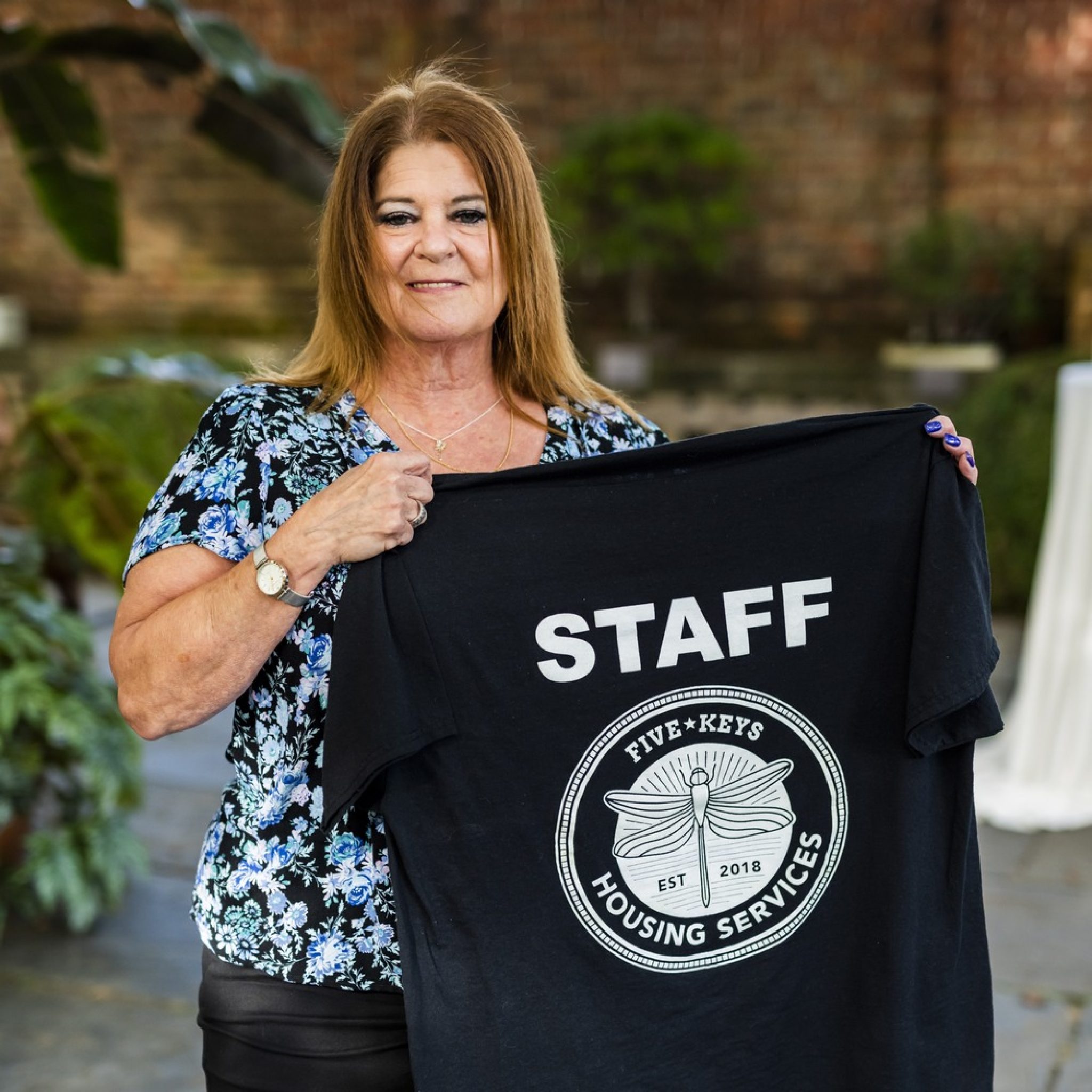
I have been so fortunate to work with Five Keys, which is an organization that aims to help homeless people in the community get back on their feet. I’m an Assistant Director and a Site Director for Alameda County, which means I help 50 employees take care of our guests. Five Keys gives me a chance to give back to a community that I took from, and now I’m dedicating my life to giving back to these people.
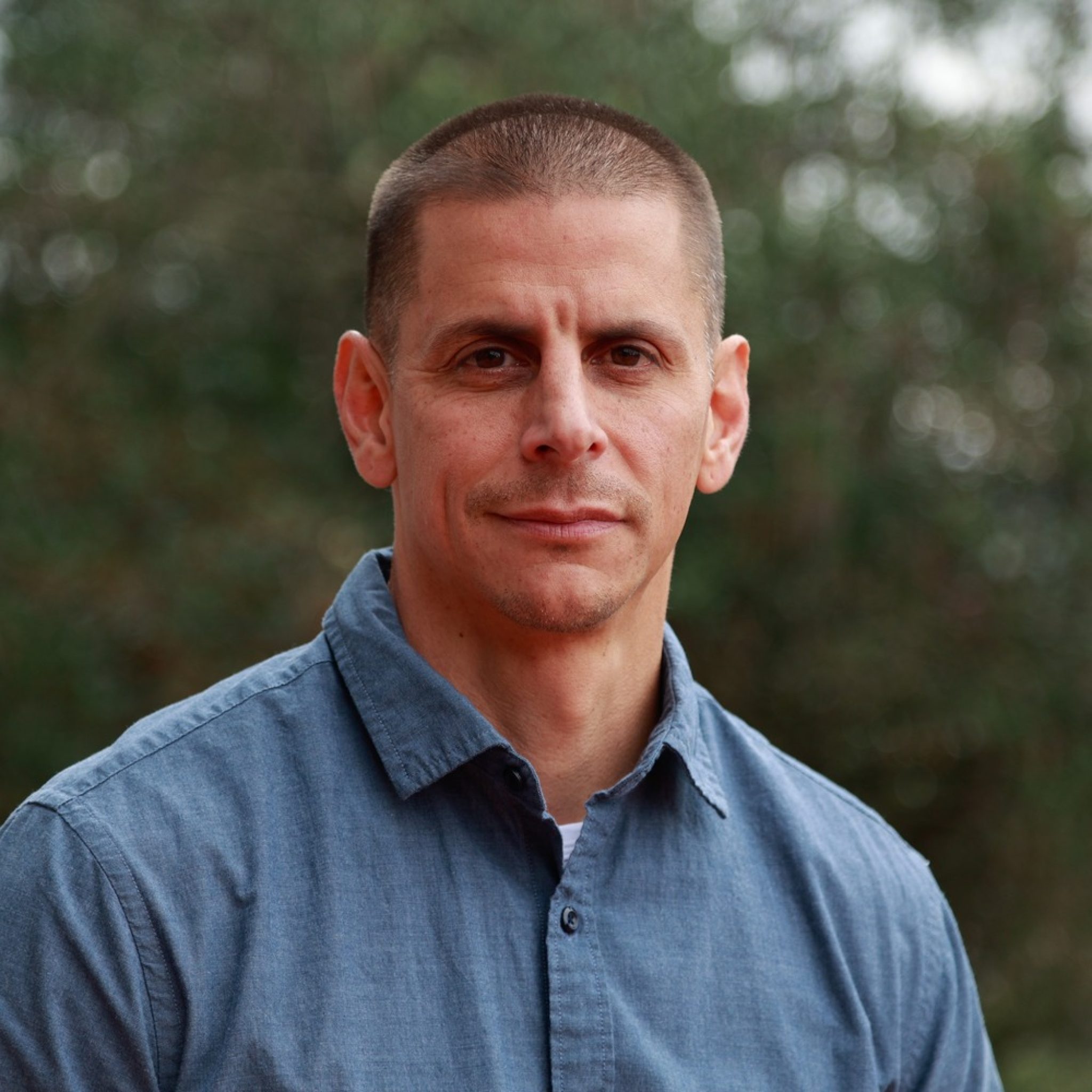
I am most proud of my work as a life coach for the formerly incarcerated community. I feel a deep sense of purpose in interacting with the people I work with and sharing all that I have learned in my life. Many people haven’t met someone who was sentenced to LWOP, and I think my story is one that brings hope to others who feel hopeless.
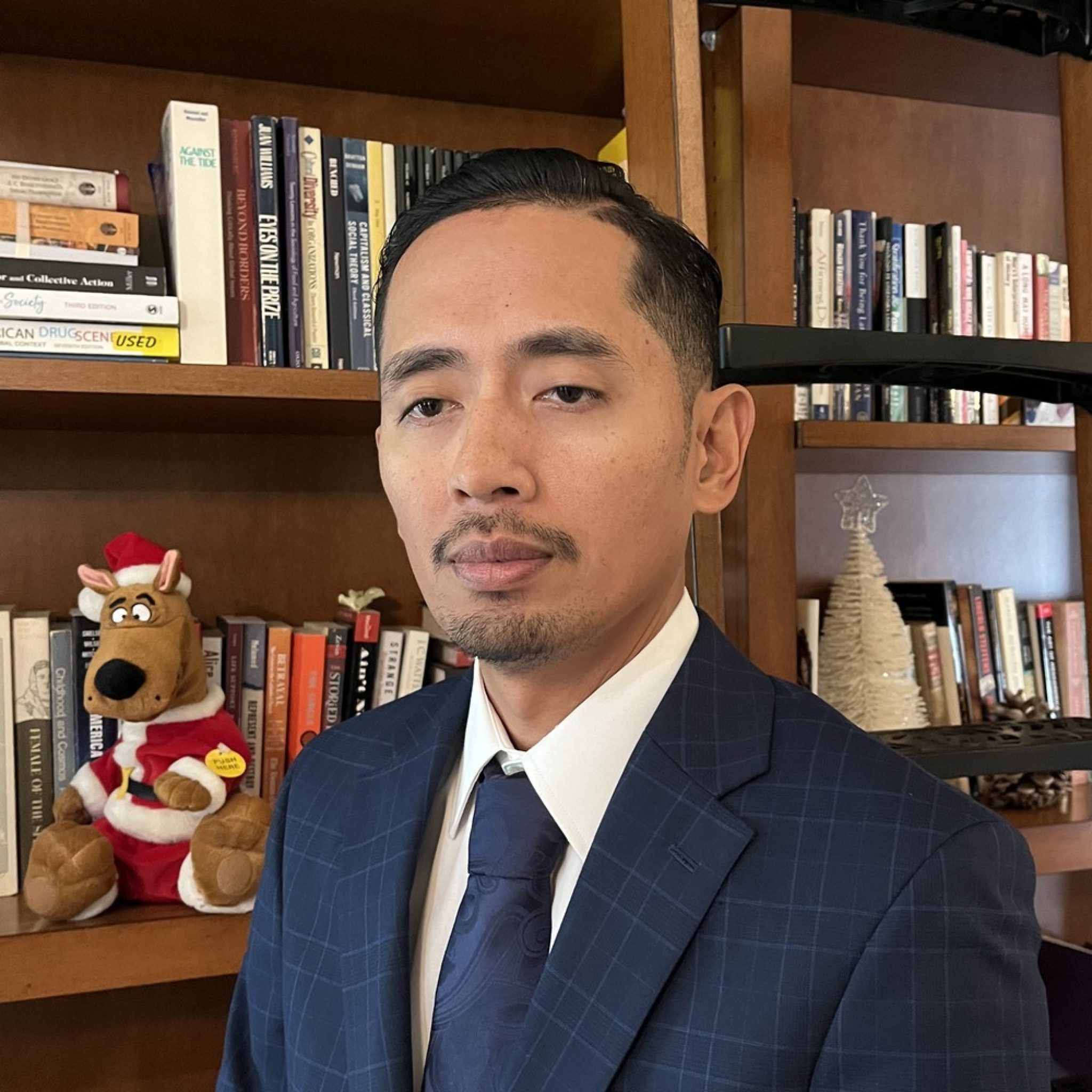
I was incarcerated at age 16, and when I came home from prison after 21 years, I had the good fortune to be embraced by a caring community invested in my success. My gratitude for that support fuels my current work. I believe reentry starts while people are still serving time, so I help people in prison to build their own supportive communities. I’m also a student organizer at Cal State Fullerton, and there I collaborate with people to amplify the voices of those who are directly impacted by the justice system, we work through the arts, media, storytelling, and personal engagements.
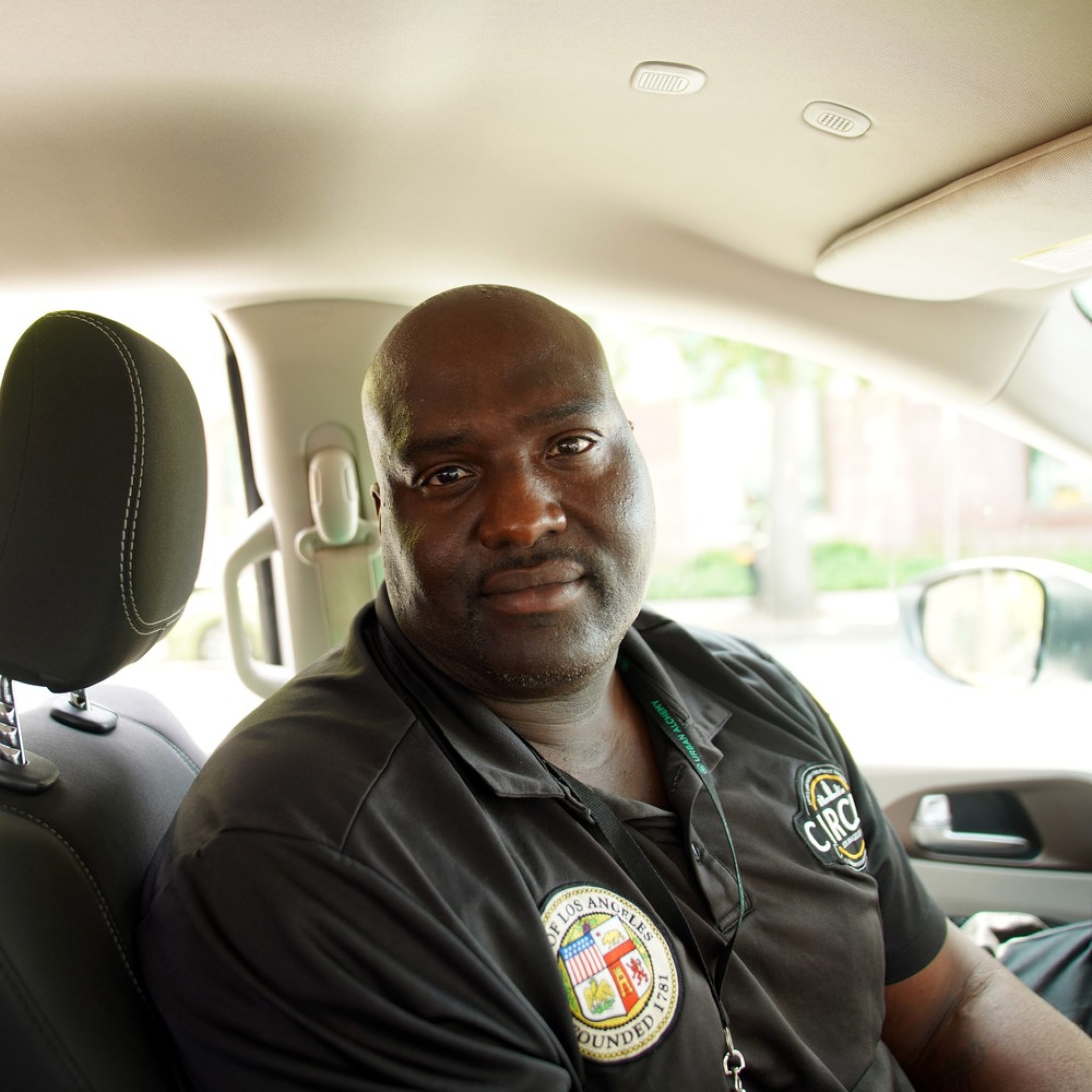
I work with people who are unhoused and my job is to help them find housing and mental health services. I know what it’s like to feel hopeless and powerless. People living on the street are judged, they are overlooked…and at times they feel hopeless and helpless. I just meet them where they are and show kindness, love, compassion, and empathy. Because, I realize when I look at them in those tents, that could have been me.
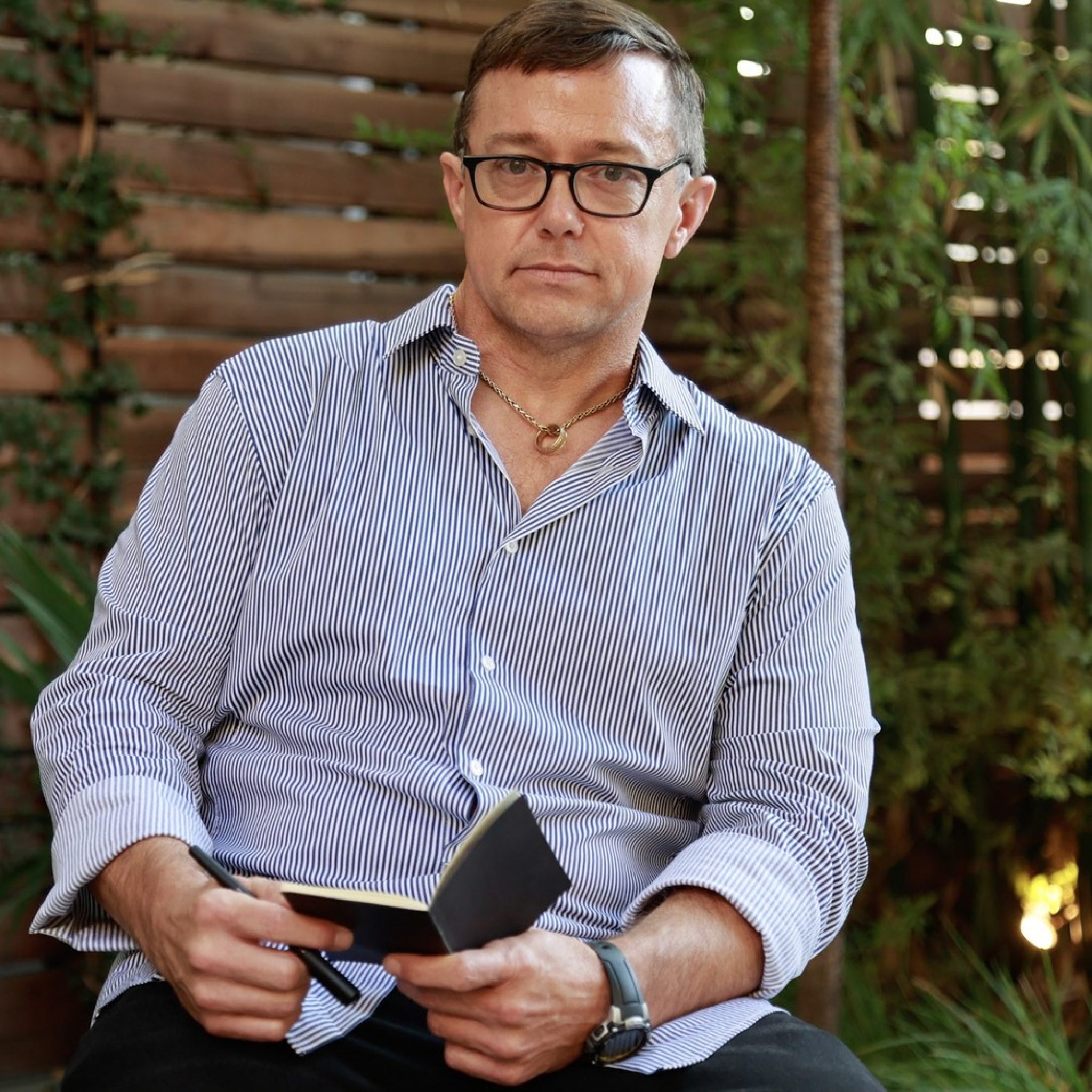
In my job, I work with crime survivors and people who have committed violent crimes. I develop ways to help them heal from some of their most isolating, confusing, and darkest moments. Many feel lost in these moments without a real chance of finding inner peace. I’ve found my purpose in helping to reveal the interconnective thread that is often hidden by our sense of worthlessness and shame.
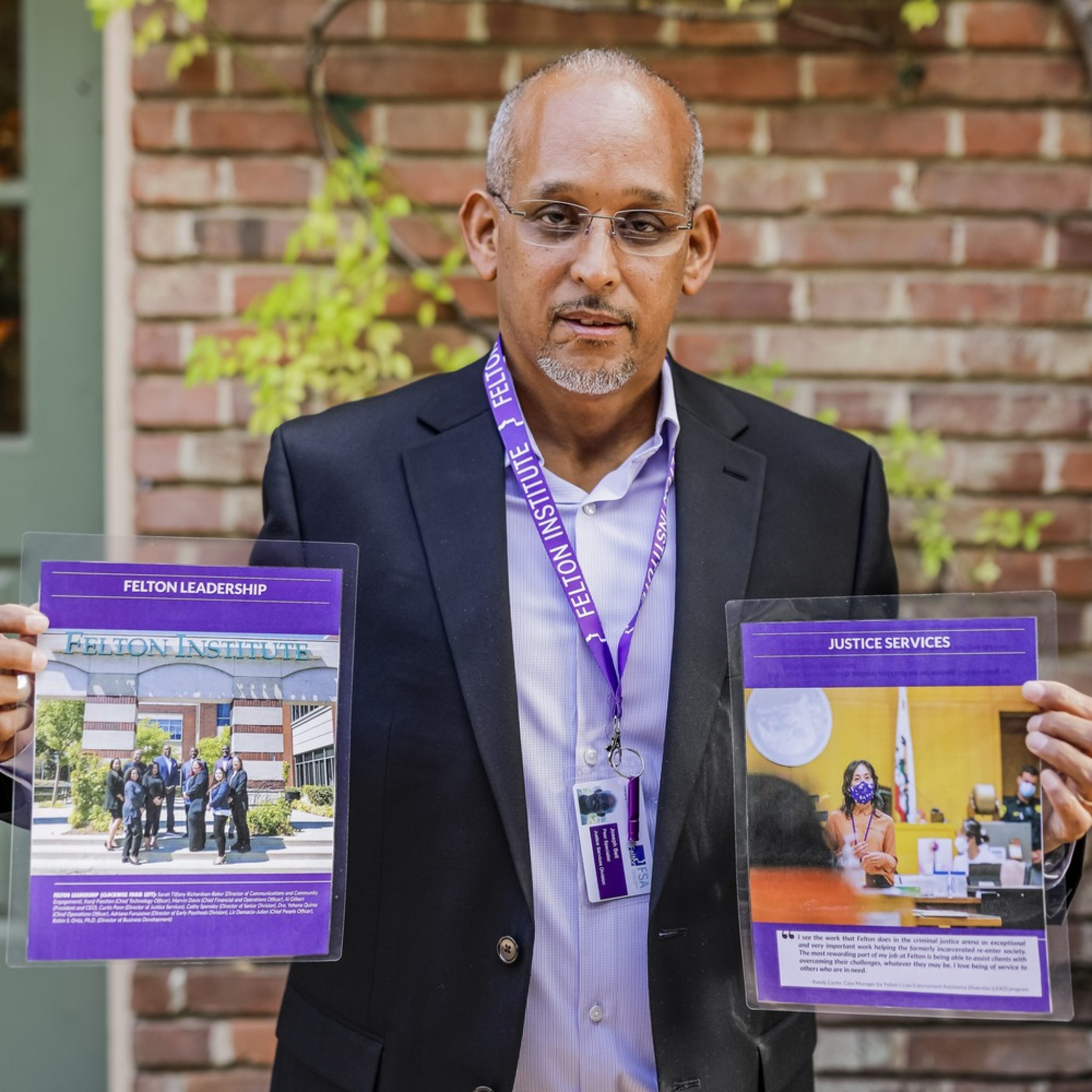
I’ve been working in the Justice Services Division of the Felton Institute. We work with people who are just getting out of jail and prison—getting them acclimated back into society and removing barriers. We do things like help them get a job, find housing, or acquire vital documents. That’s my job – helping people. I can’t believe that’s what I get paid to do!
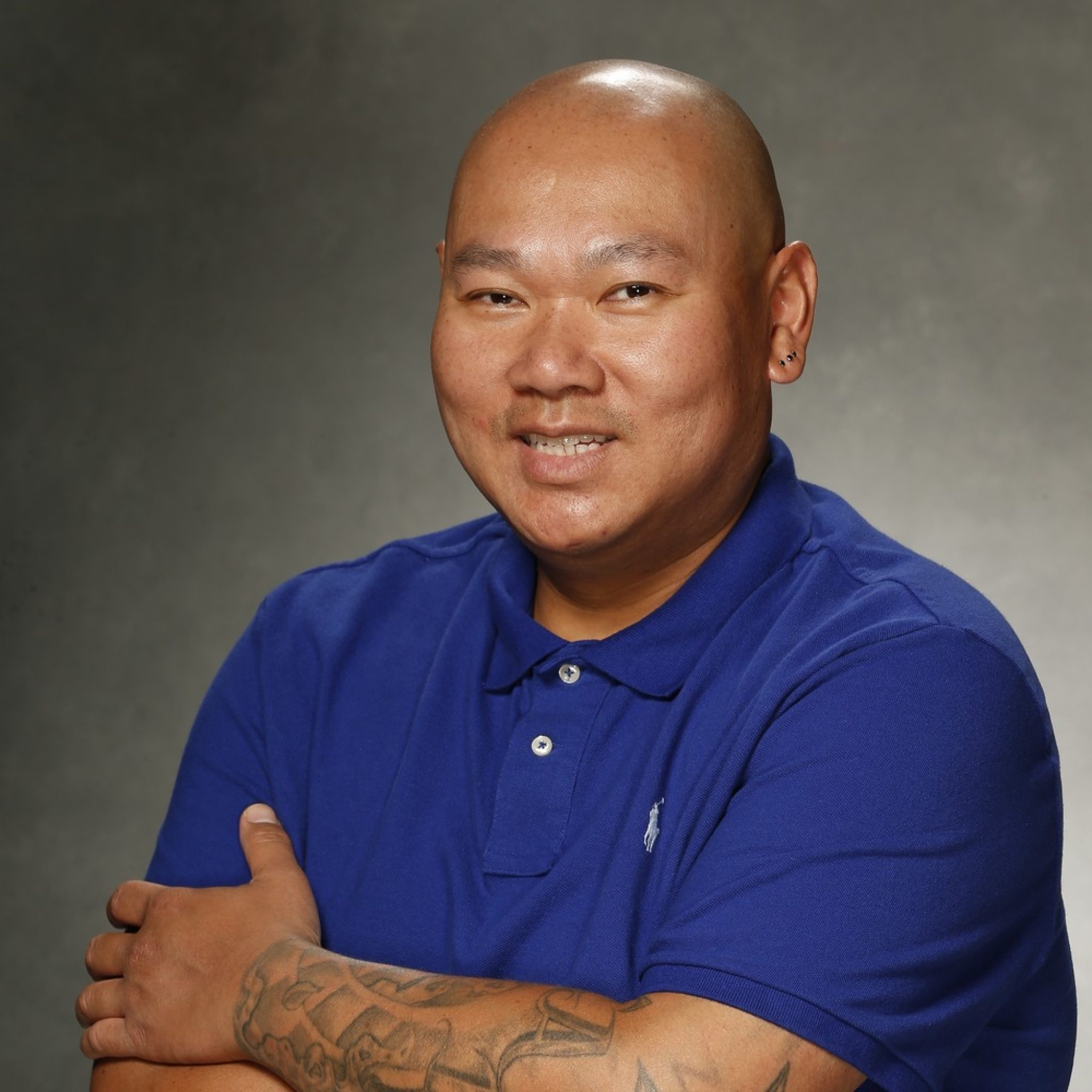
The one thing I am most proud of since my return to society is getting involved with food banks. When I was a child, our family benefited from food banks, so it now brings me a lot of joy to take part in helping families who are hungry. In my free time, I have participated in fundraisers and food distribution and am glad to be in a position to contribute to my community.
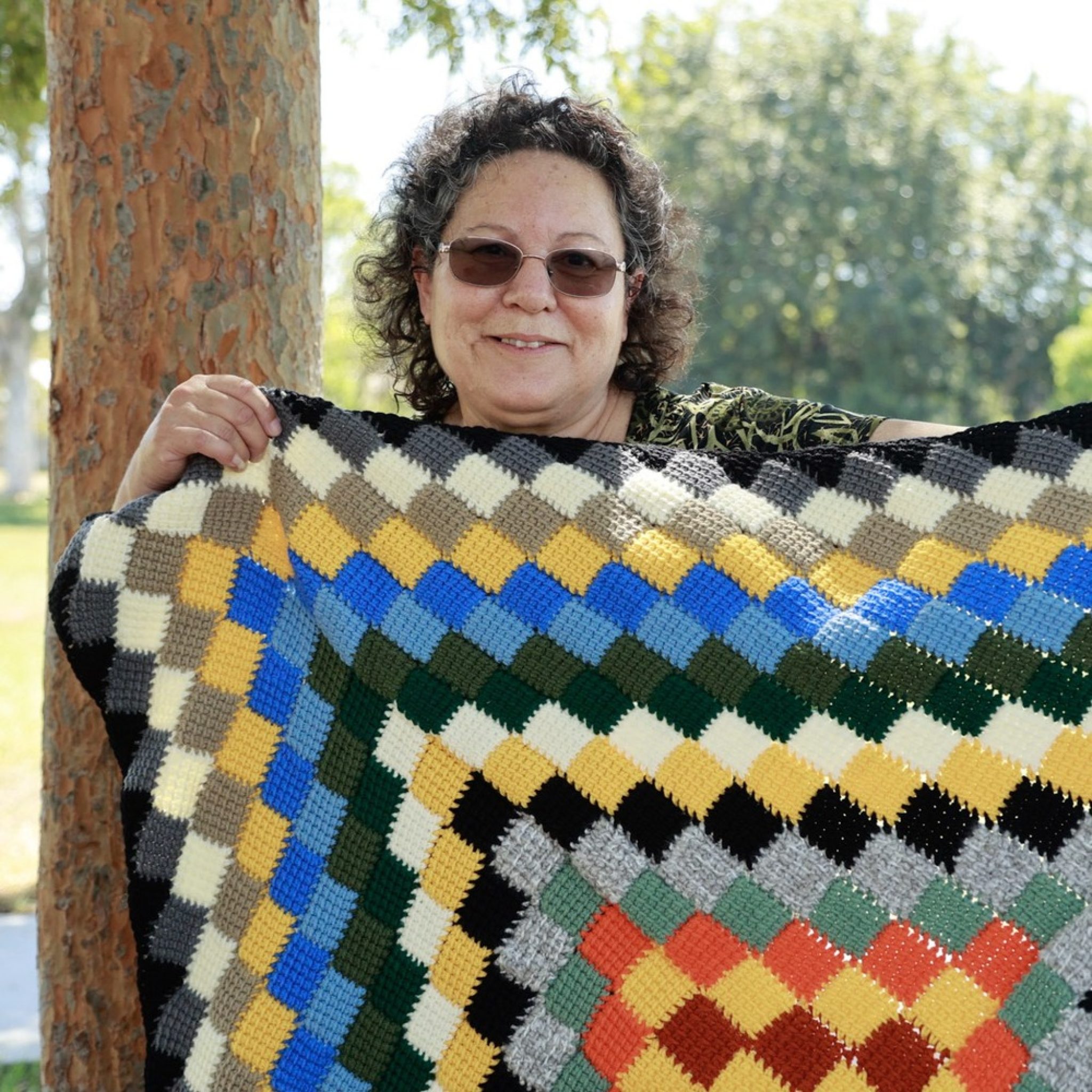
I make lap blankets for wheelchair bound veterans. It takes about two months for each blanket because I make them using donated yarn. The yarn isn’t always one thickness, or it might come in many different colors, which is why it can sometimes take so long. Once I finish crocheting them, I donate them to a veteran’s hospital to distribute to wheelchair bound veterans.
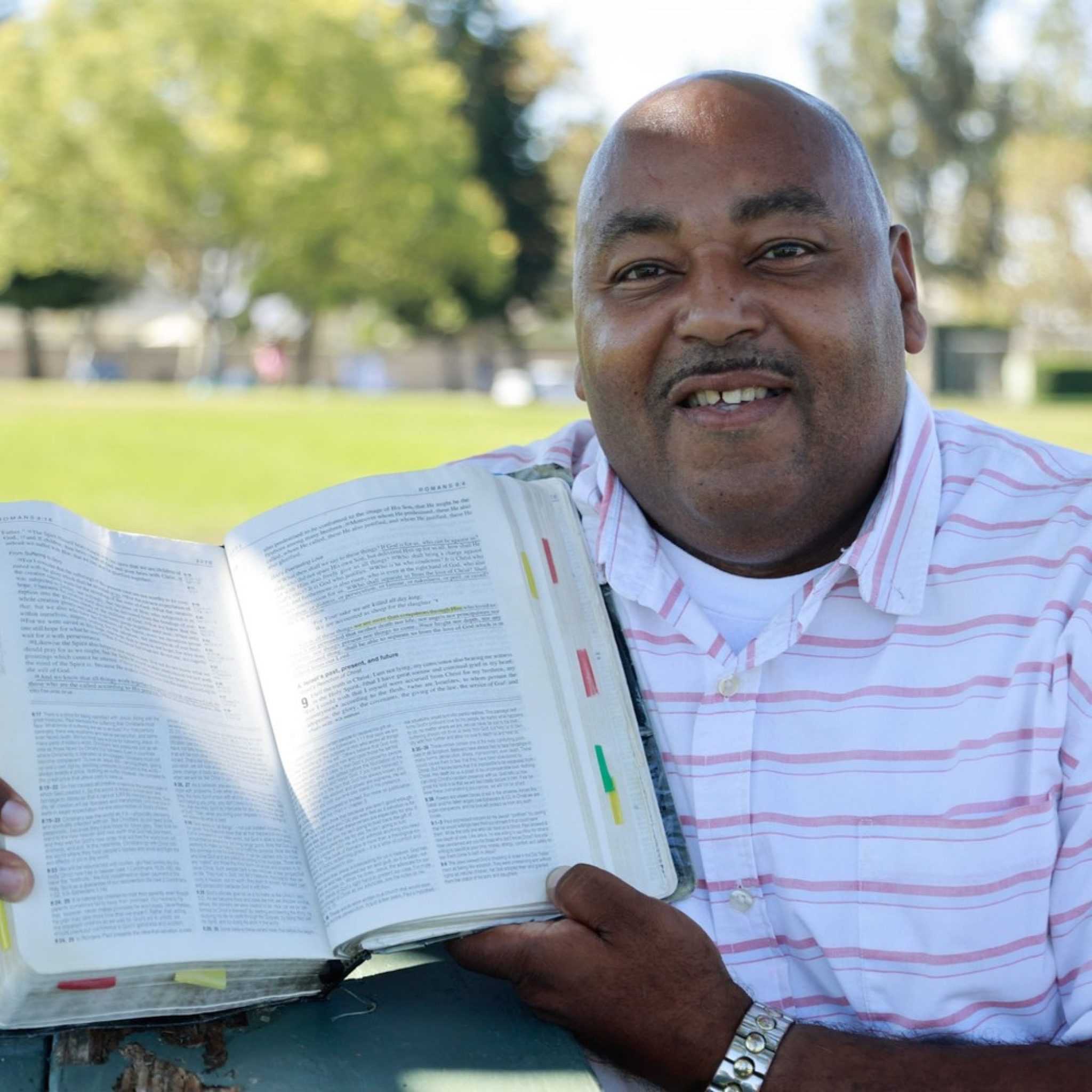
I work with people who are still incarcerated. I go into prisons for Protestant services, and I teach the Bible—preaching hope. Recently I worked with some of the people inside to organize a fundraiser. They used their own money to buy over 3,800 teddy bears to donate to children in hospitals.
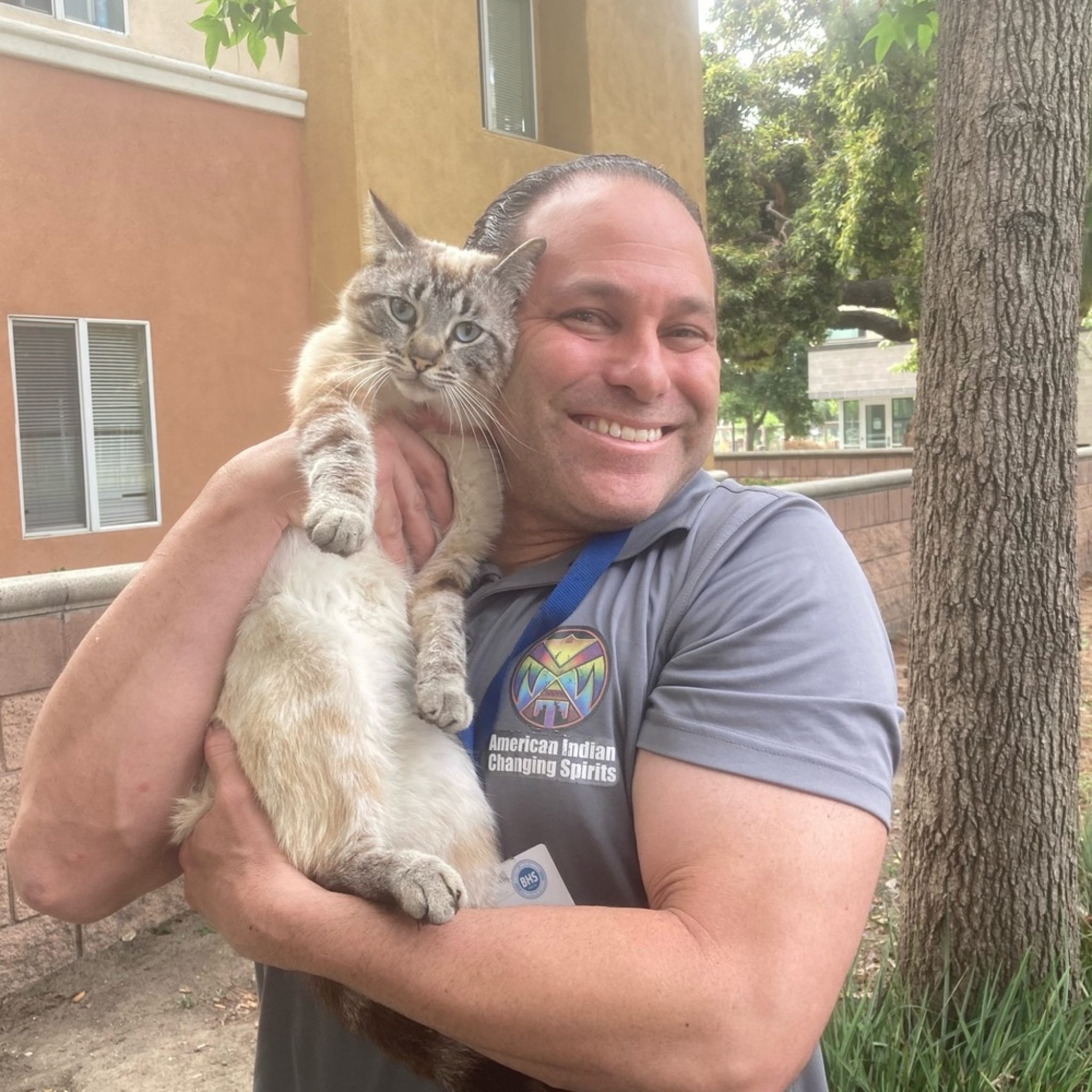
I work as a substance abuse counselor at an inpatient treatment center. The patients I serve ask for help with a broad range of life problems and come from various walks of life, but the framework that I help them with— “Insight, Remorse, and Responsibility”—is universal. As I pass what I’ve learned on to them, the look of change in their eyes is more rewarding than I could have imagined.
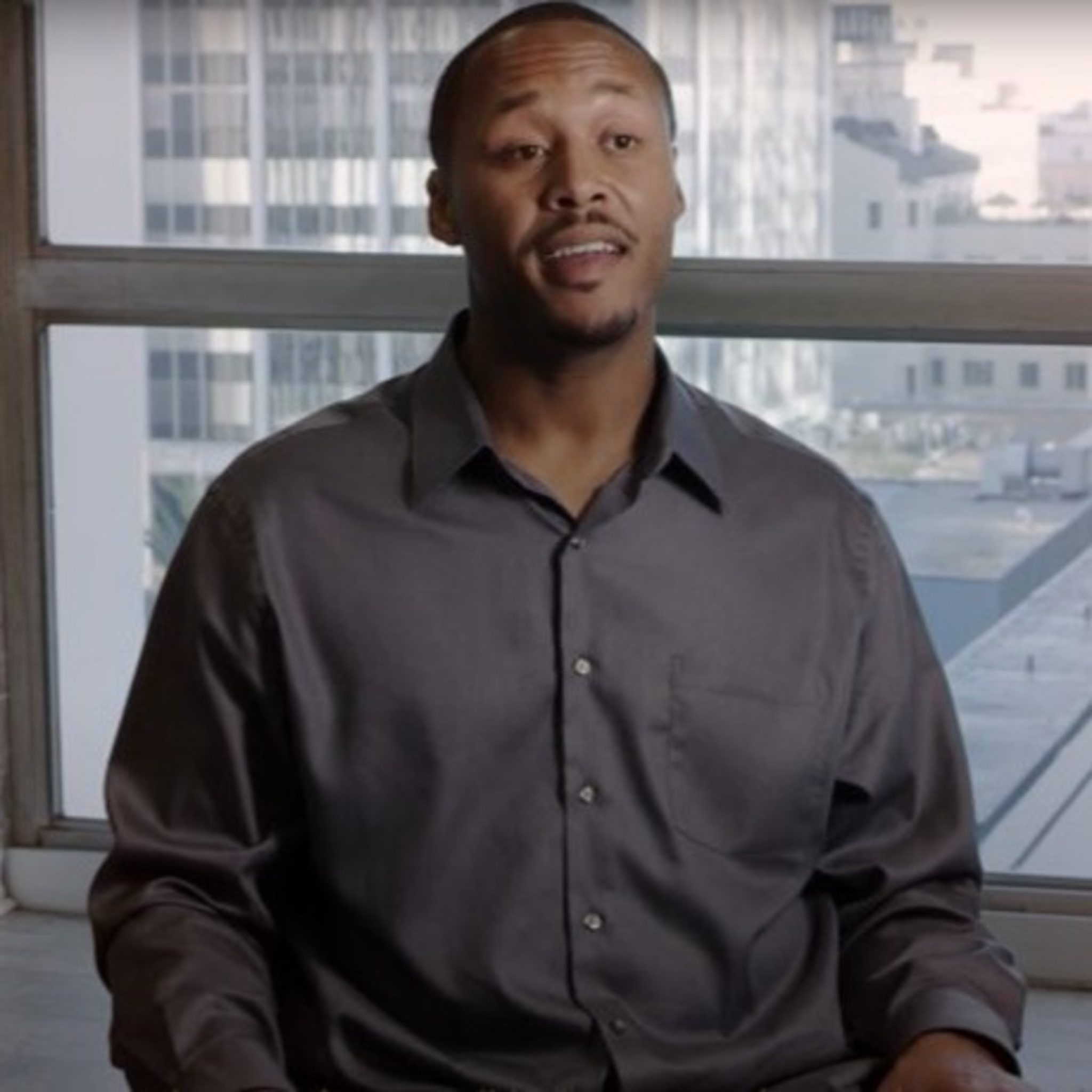
When I was a teenager, I killed the man who had sexually abused me for many years, and who I learned was starting to abuse my younger brother. I was sentenced to life without parole. This year, I worked to pass a law that protects children who are trapped in sexually abusive or exploitive situations. It feels good to know that I am helping keep children from facing what I experienced, and making sure they get the support they need and deserve.
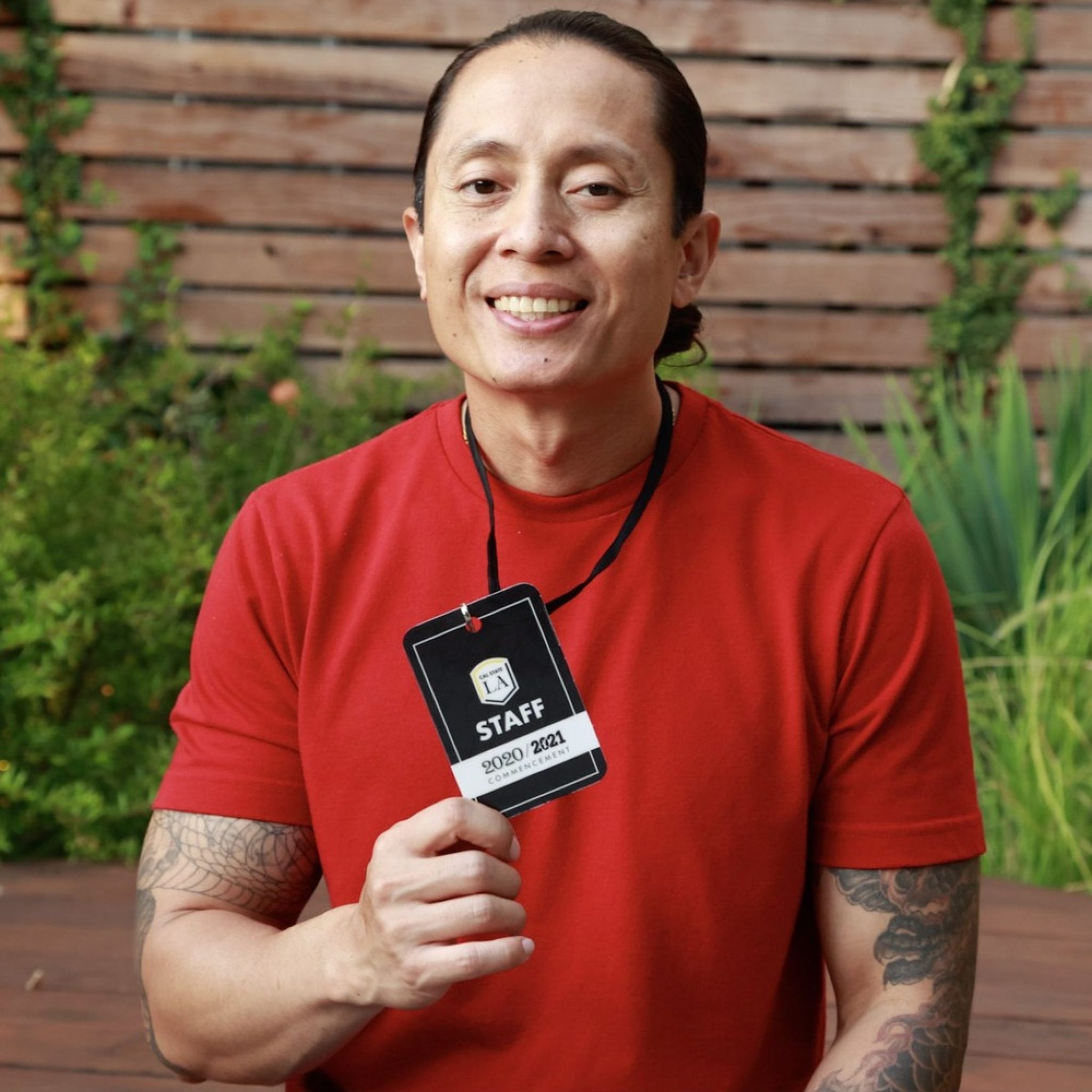
I volunteered at Cal State LA’s commencement for the classes of 2020 and 2021. To see so many smiling faces—family members, students, graduates, even faculty members—was inspirational. It really motivated me because I’m still a student. For me, it was a precursor to what is ahead of me. Being incarcerated, in and of itself, was a failure. I failed to make the right decisions. I failed to have the right values and belief systems. But now, I have the chance to succeed at pursuing higher education, and all of these things are coming full circle.
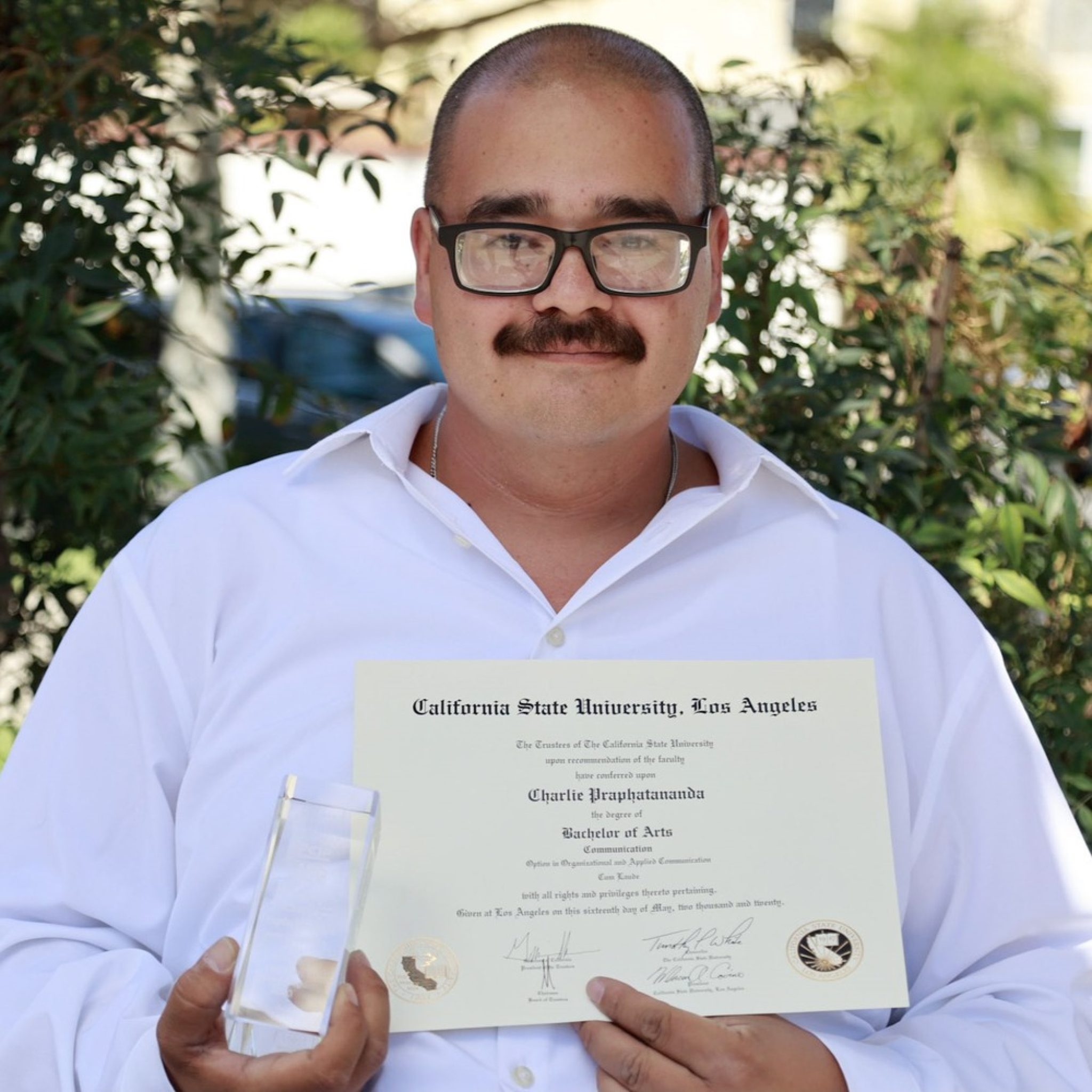
I recently completed my bachelor’s degree in Communication Studies with honors from Cal State LA. I feel proud because it taught me to be a better communicator and to be mindful of the people around me and what they’re going through. It’s really helped me navigate life and be able to explain my past, where I’ve come from, and how I’ve evolved into the person that I am today.
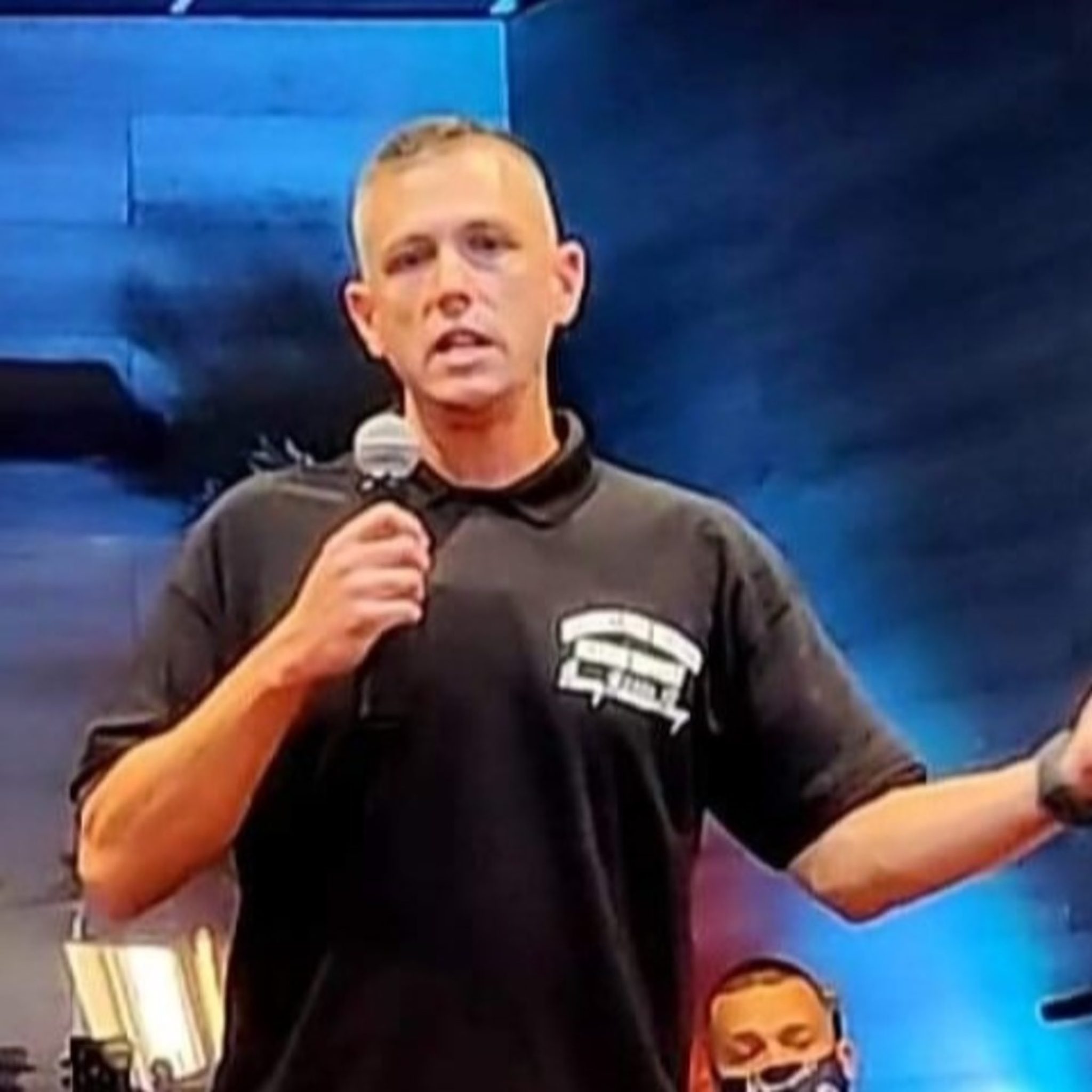
Every month I volunteer at the Short Stop Juvenile Crime Prevention Program, where I speak to at-risk youth about the danger of gangs and criminal behavior. I’m having a positive influence, and the privilege of giving back to the very community I took so much from is both rewarding and humbling.
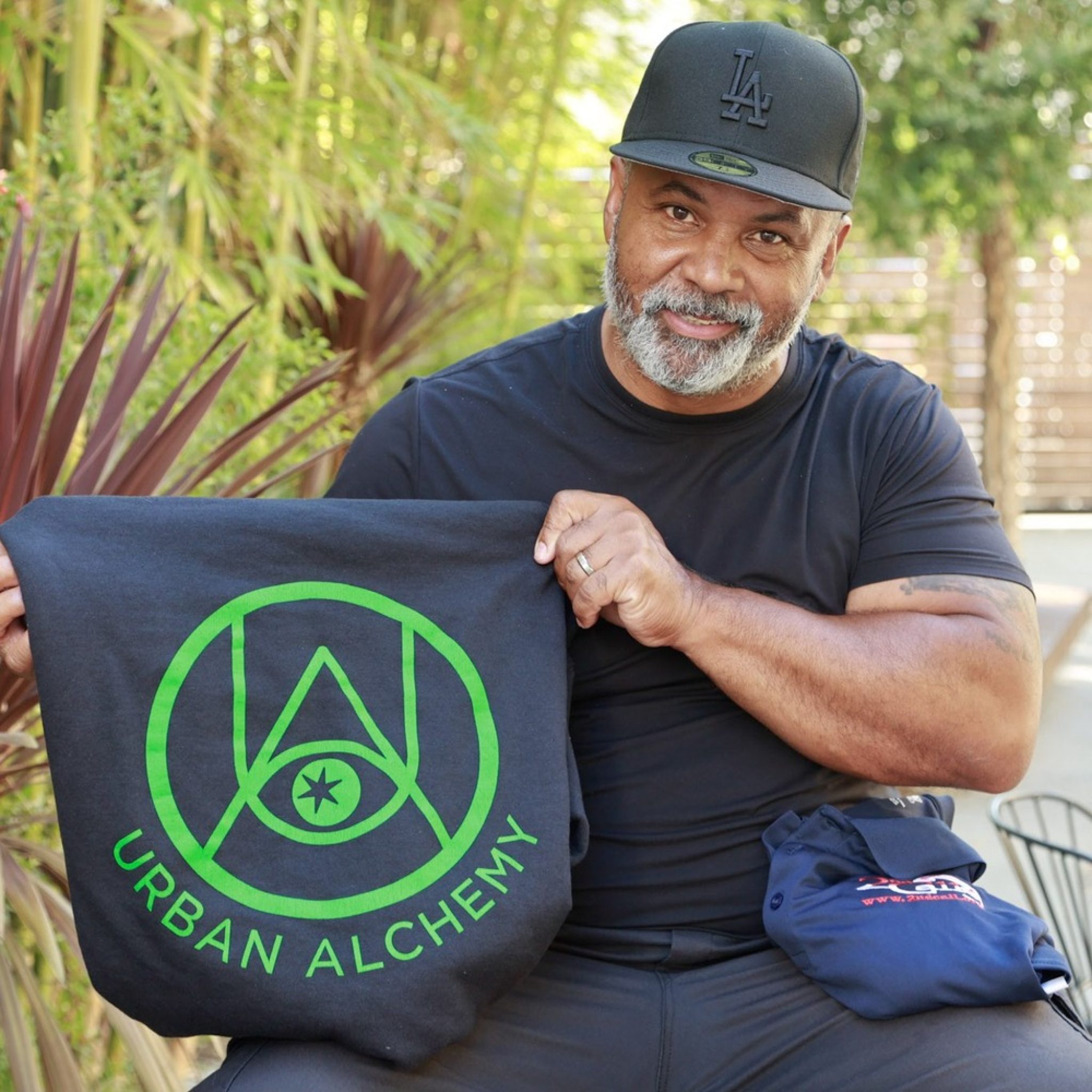
When I got out of prison, one of the things that really hit me hard was seeing how many homeless people there were. It wasn’t like that when I went into prison. I started working with an organization that helps people who are homeless. We find encampments and provide bathrooms, showers, and hygiene items. We also help people get resources, like housing.
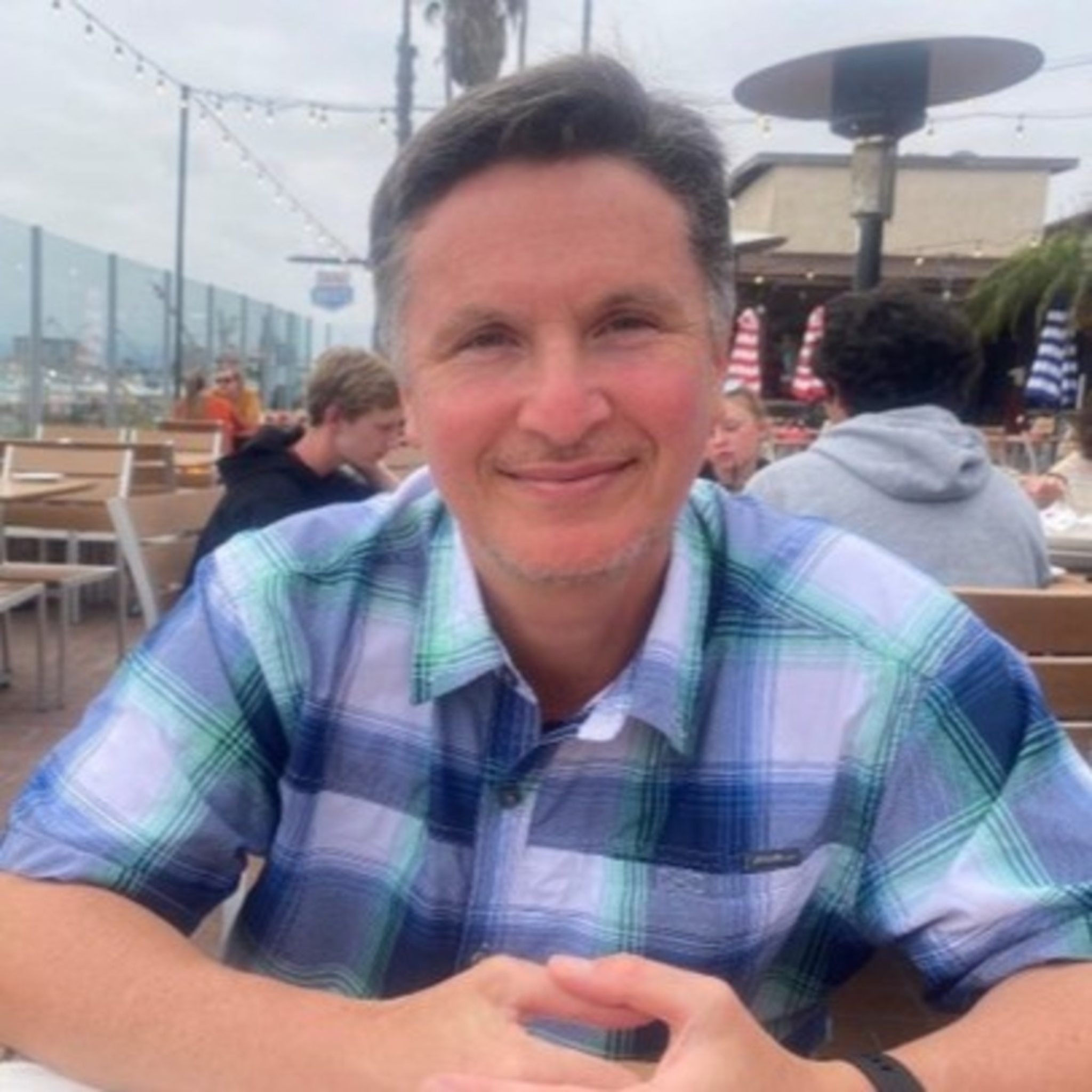
Today I live a life of service and compassion as a behavioral health technician at a drug and alcohol detox facility, supporting and encouraging those struggling with addiction to live their best lives. I treat people with the dignity and respect others showed me when I was lost and looking for answers, believing that compassion softens hardened hearts and is the key to motivating change.
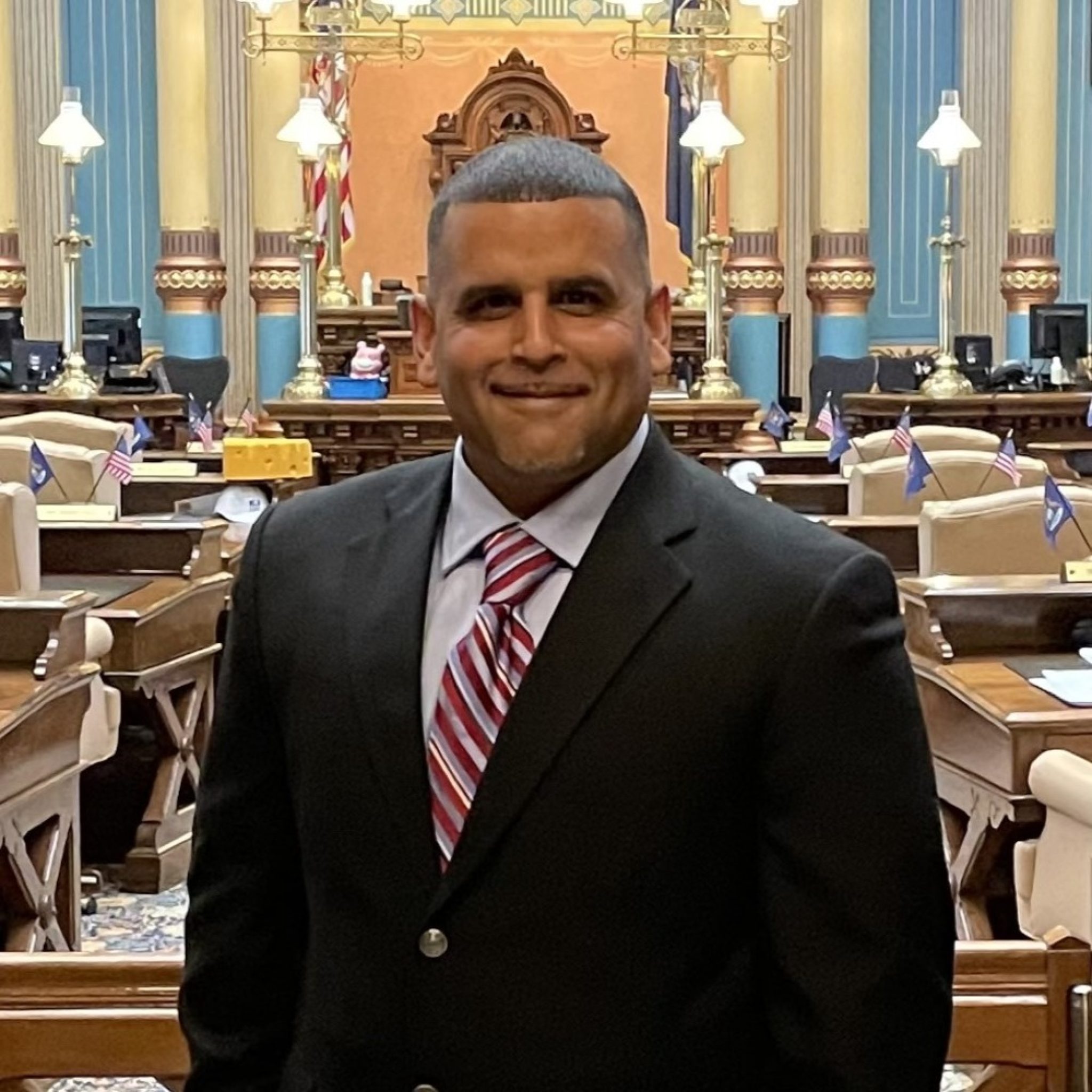
After 27 years of incarceration on a juvenile life without parole sentence, I became a reentry specialist. I’ve been able to help so many returning citizens who were once sentenced to life without parole get back on their feet with housing, employment, and showing them that a meaningful life outside of prison is still possible.
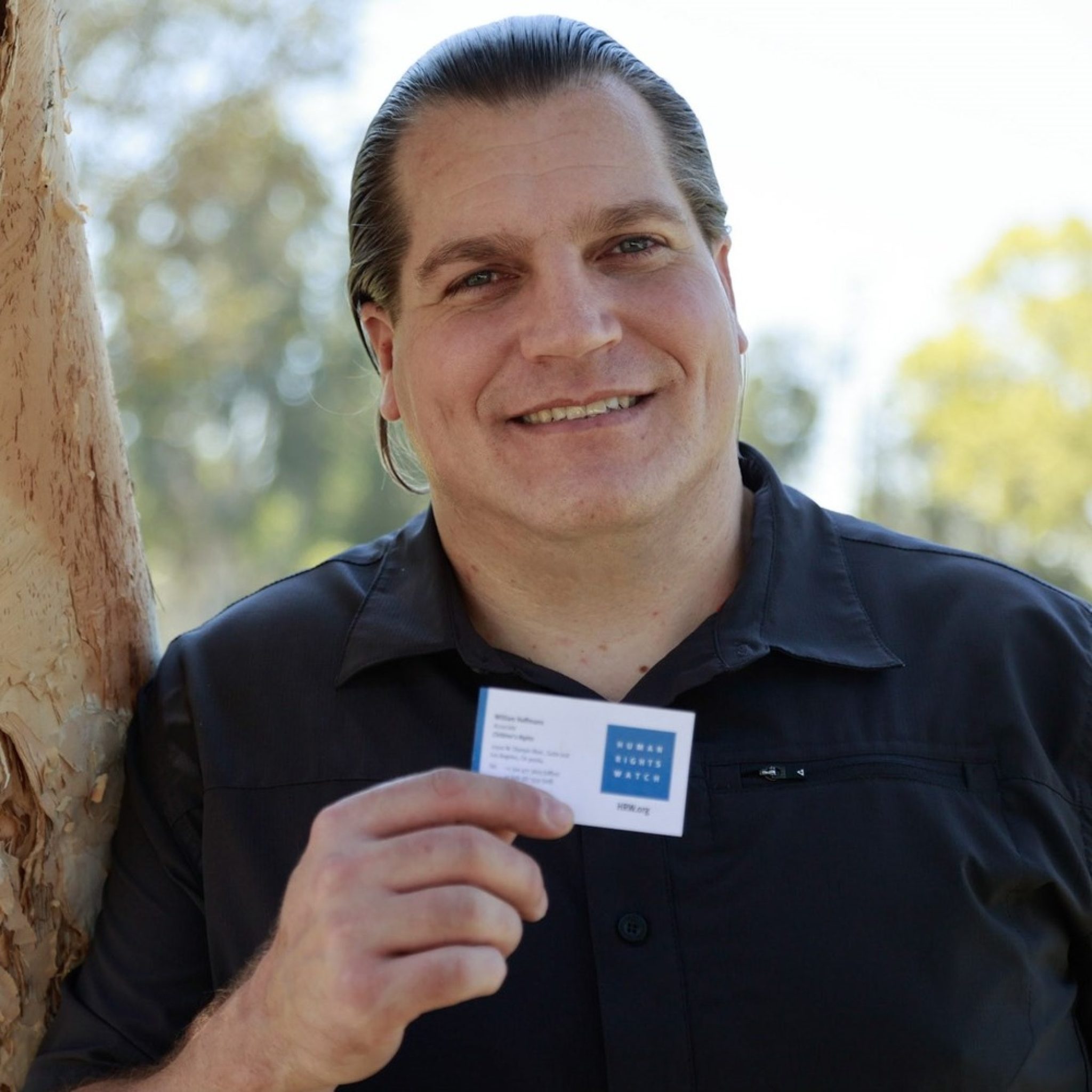
I am a coordinator for the Children’s Rights Division of Human Rights Watch, and I feel so proud to be working for an organization that defends and protects the rights of people all over the world, especially children. My job also provides me with an income so that I can provide for myself, my wife, and my family. It means a lot to me that I can provide for others and pay taxes now instead of being a burden on my family and taxpayers. I am giving to something bigger than myself.
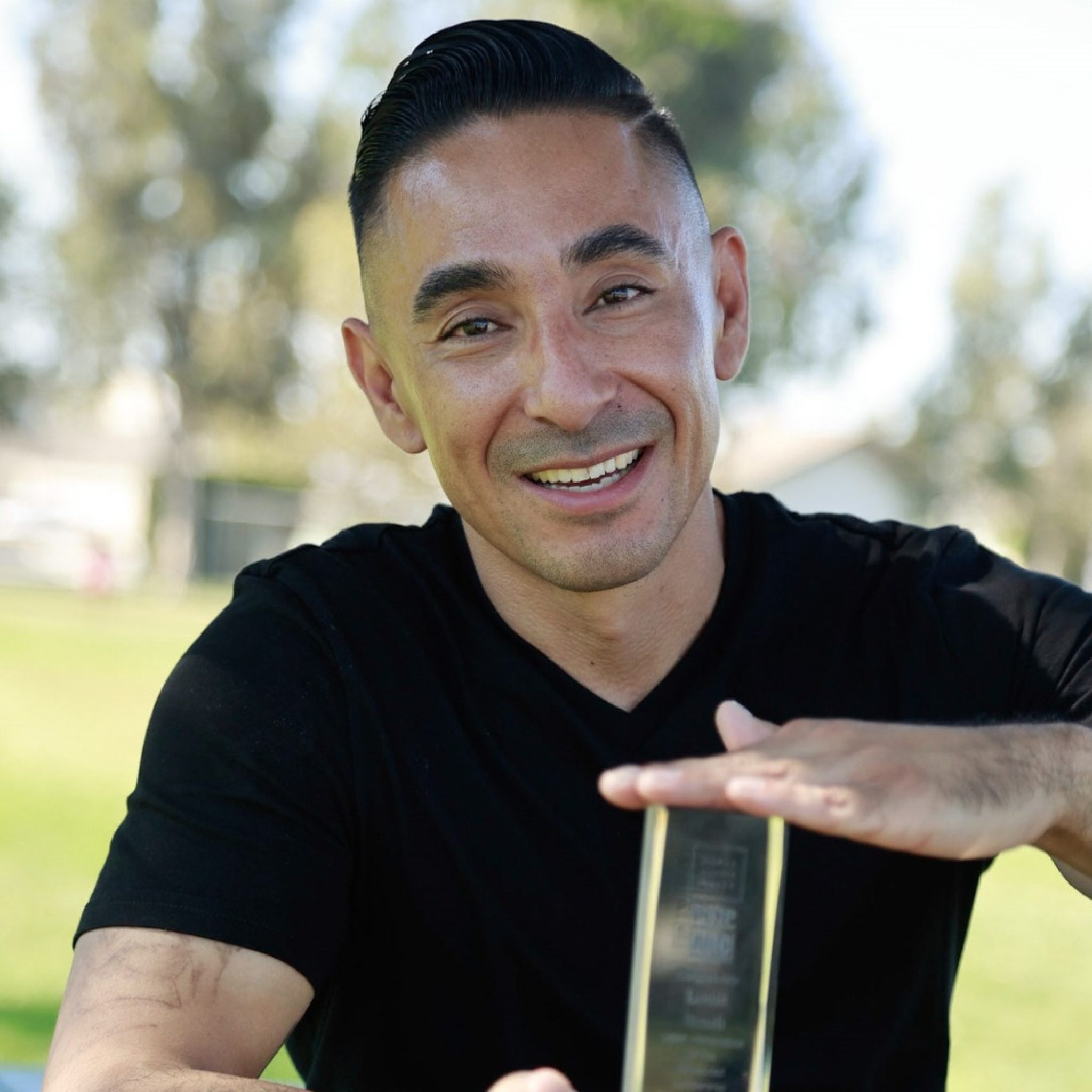
This is the first plaque that I’ve ever received, and I keep it in my room, next to my bed. I received it for completing a leadership training with Human Rights Watch. After 25 years of incarceration, I’m learning how to be an adult in the real world for the first time, and I’m able to give back by being a part of something that has helped me and so many other people. It’s one of my passions. Through this work I’m able to advocate for my brothers and sisters on the inside, and this plaque is a reminder that I will never stop fighting for them.
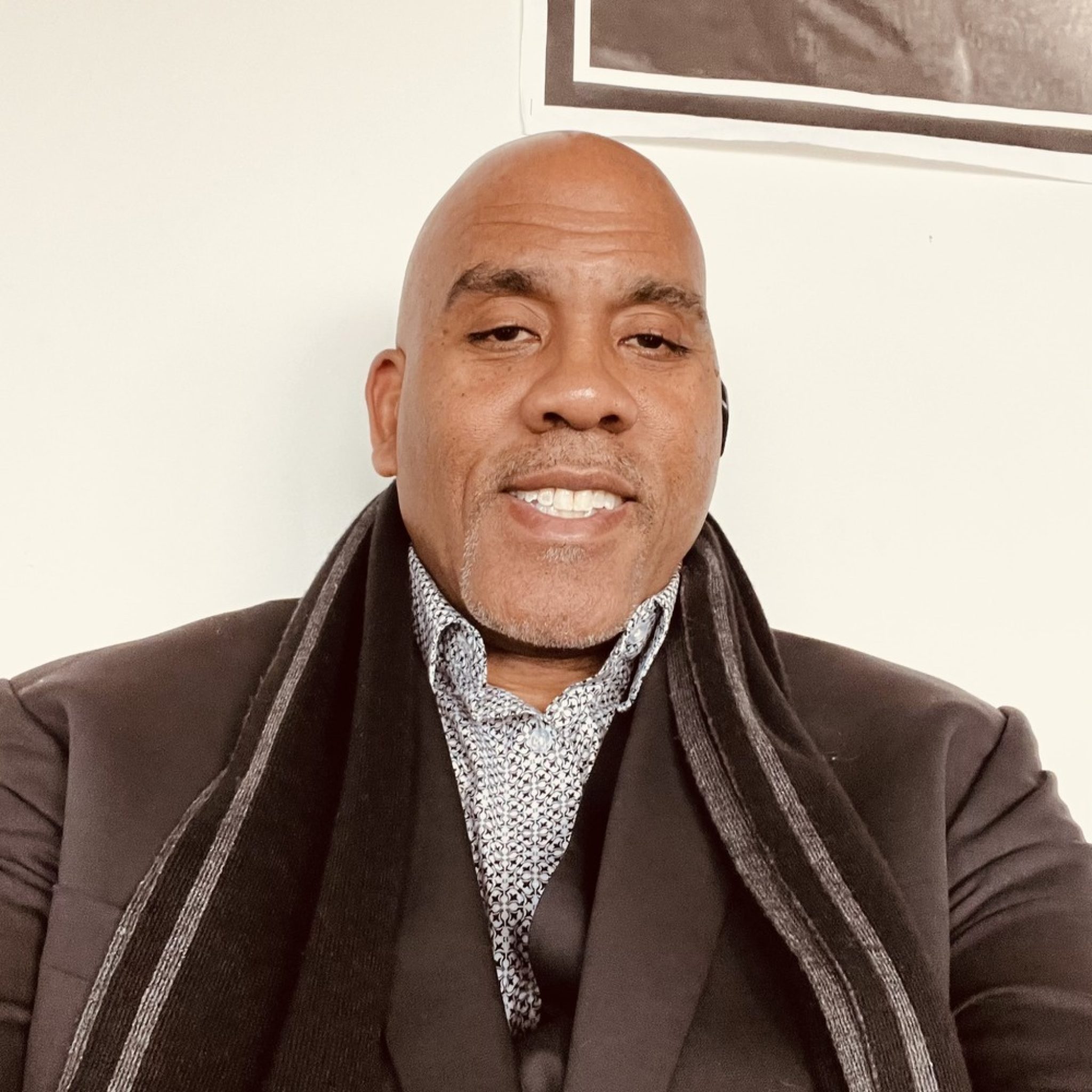
I started my own transportation business, Freedom Express Transportation Services. We employ men and woman returning home from incarceration, who otherwise can have a hard time finding a job. We’re helping them become productive members of society. My company provides transportation for a reasonable cost to the community, and we also donate free rides to elderly people who need to get to doctor’s appointments.
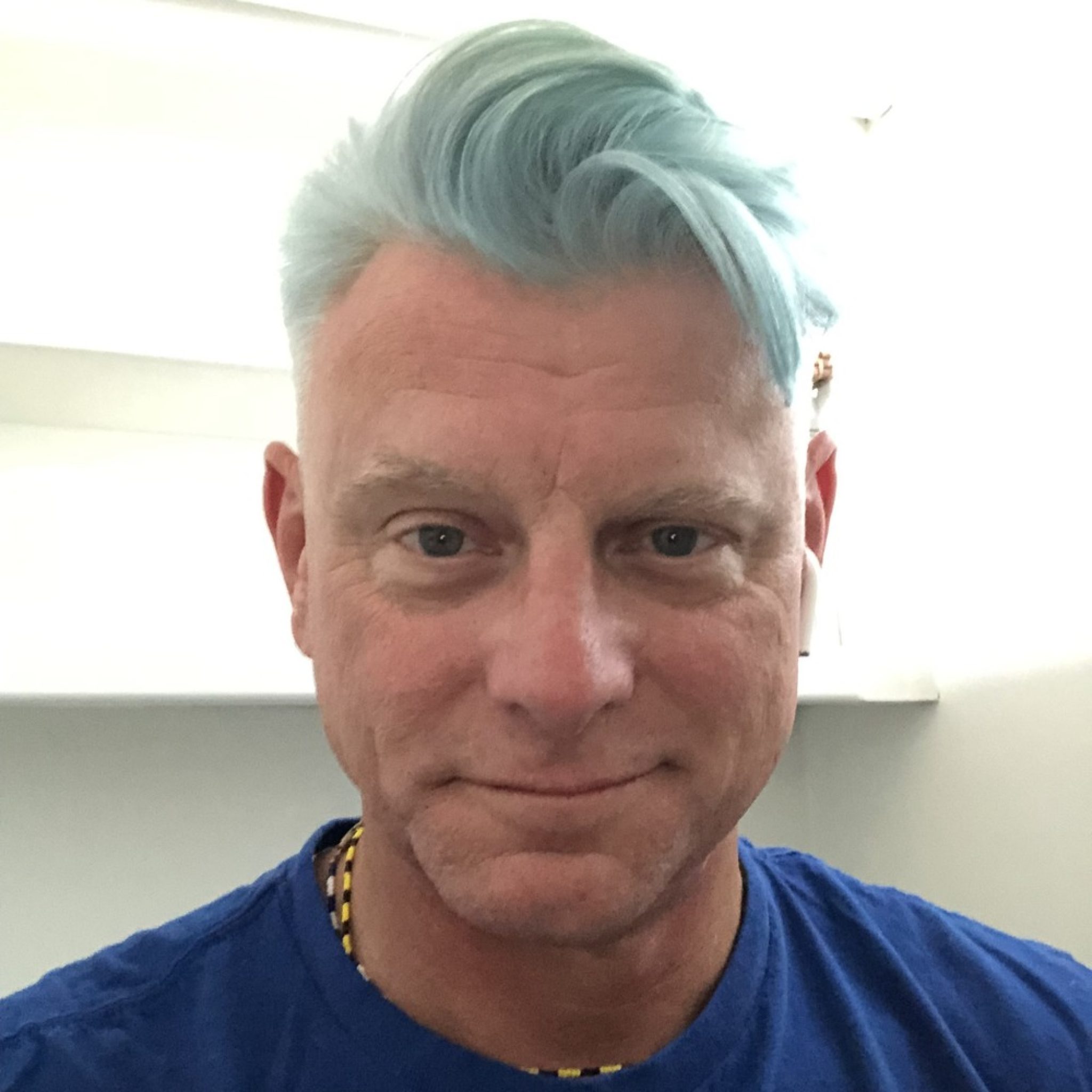
I want to make sure that every community I am a part of flourishes; it should be better for my inclusion. I was fortunate to earn a BA inside, and now that I am free, I am continuing my education by pursuing an MFA at California State University, Los Angeles. Education is the most valuable tool in helping the community. I’m working on a program to fund others as they work towards post-graduate degrees and a theatre program for men still inside.
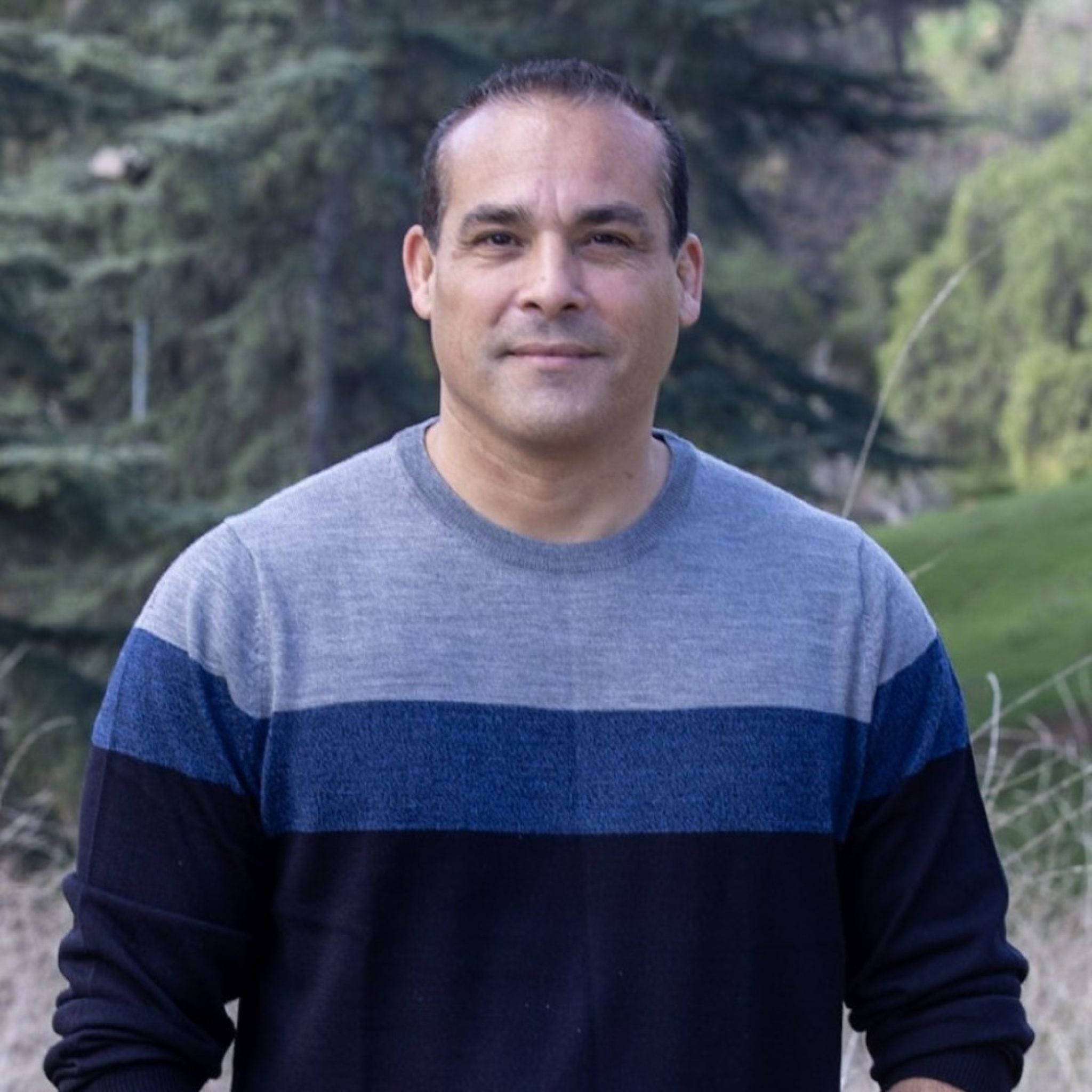
I want to make sure that every community I am a part of flourishes; it should be better for my inclusion. I was fortunate to earn a BA inside, and now that I am free, I am continuing my education by pursuing an MFA at California State University, Los Angeles. Education is the most valuable tool in helping the community. I’m working on a program to fund others as they work towards post-graduate degrees and a theatre program for men still inside.

